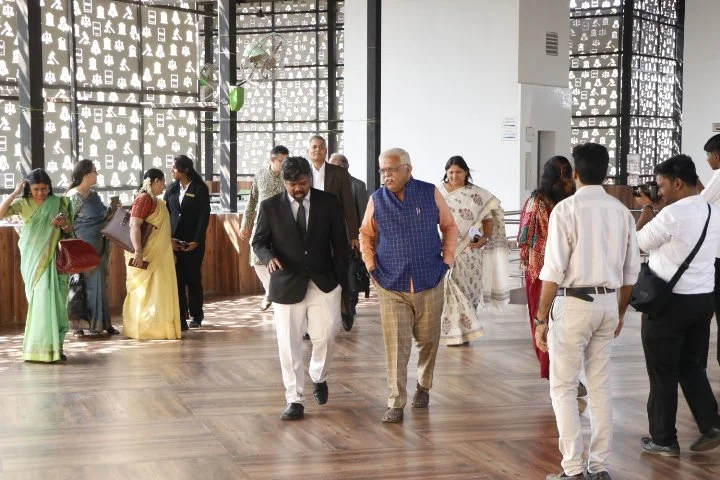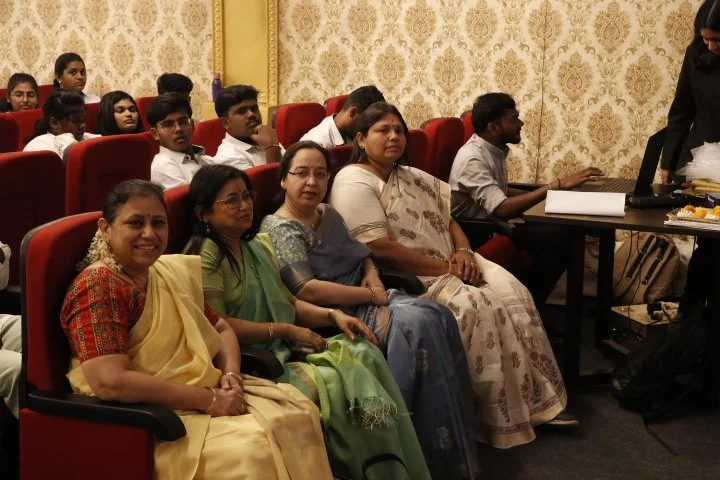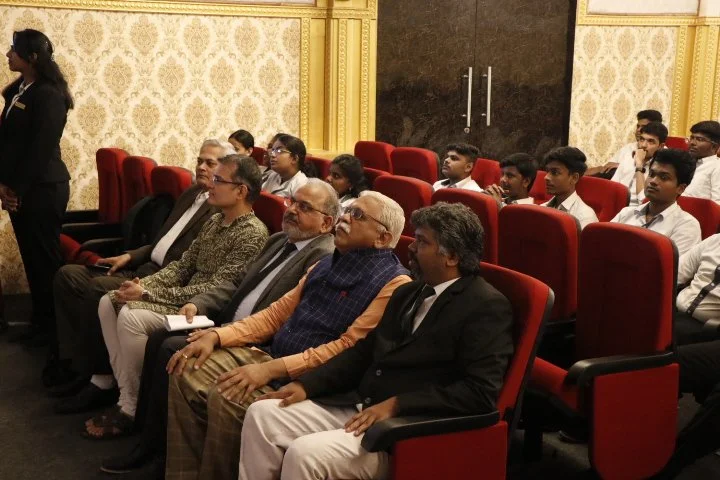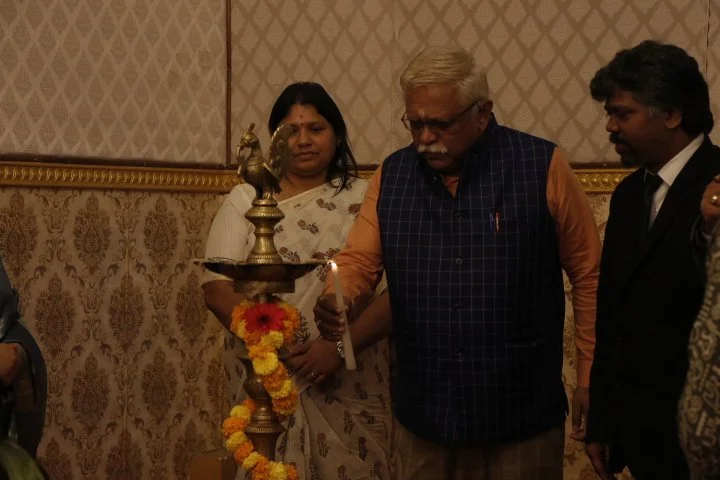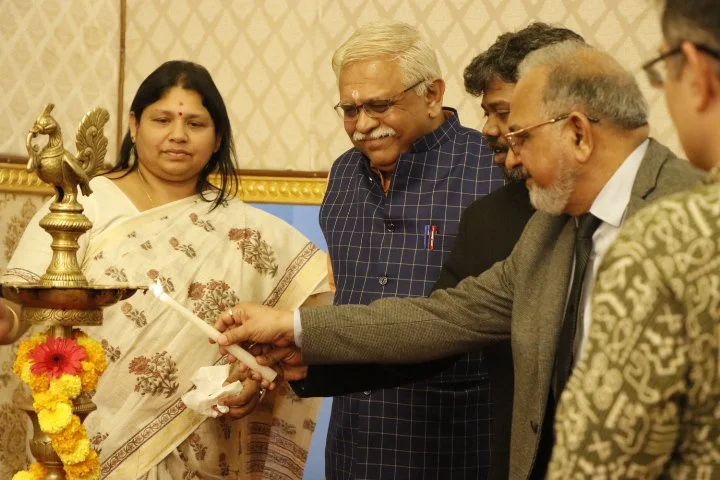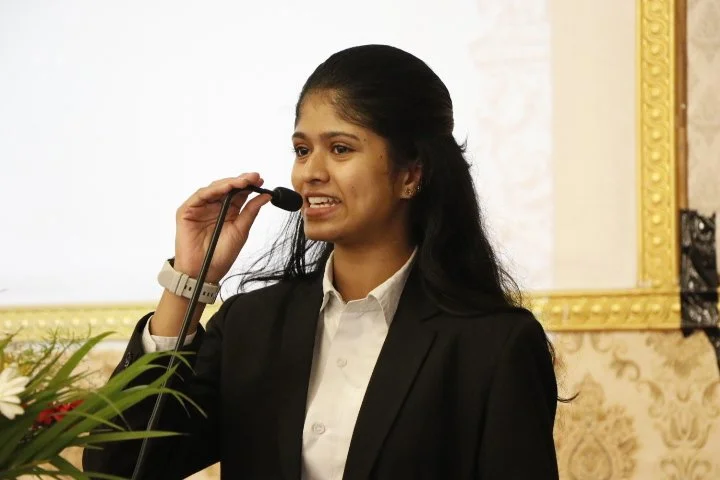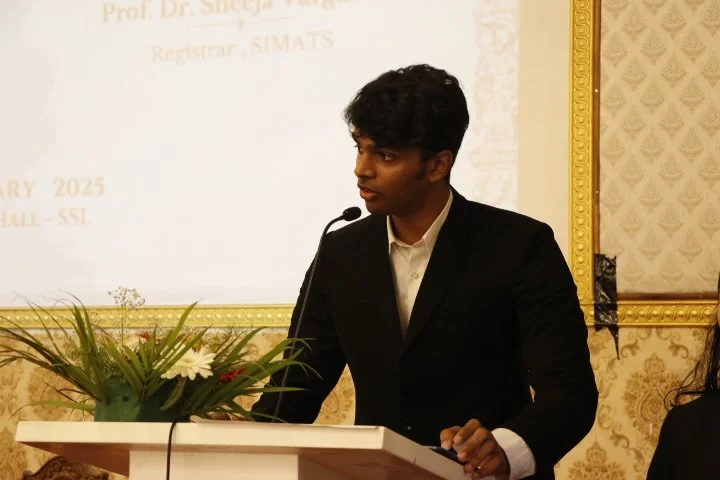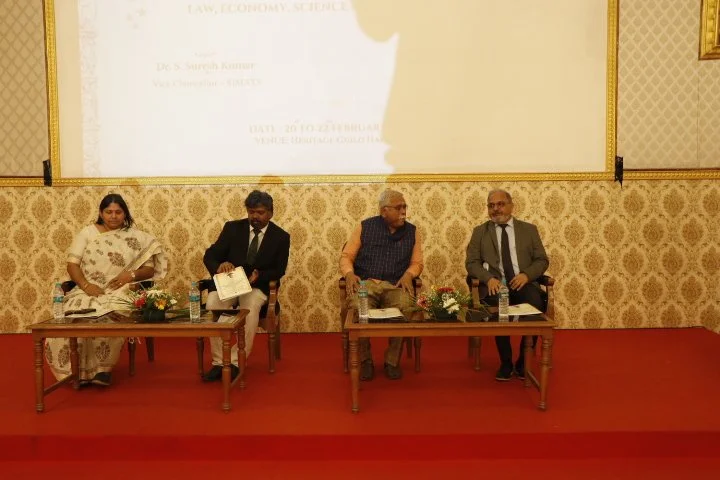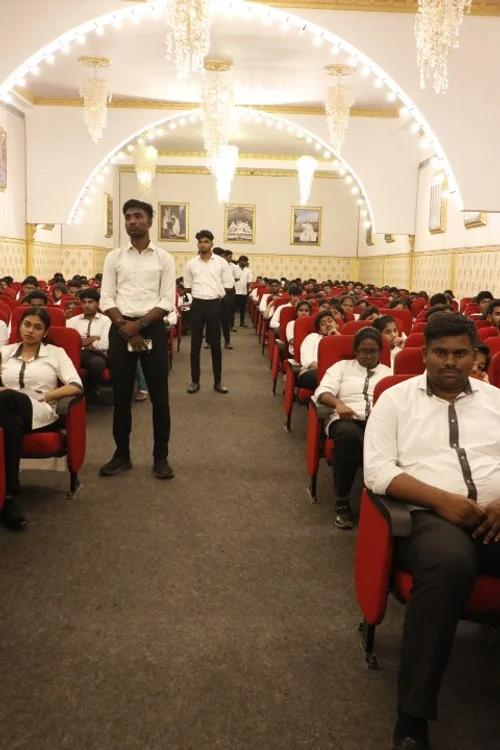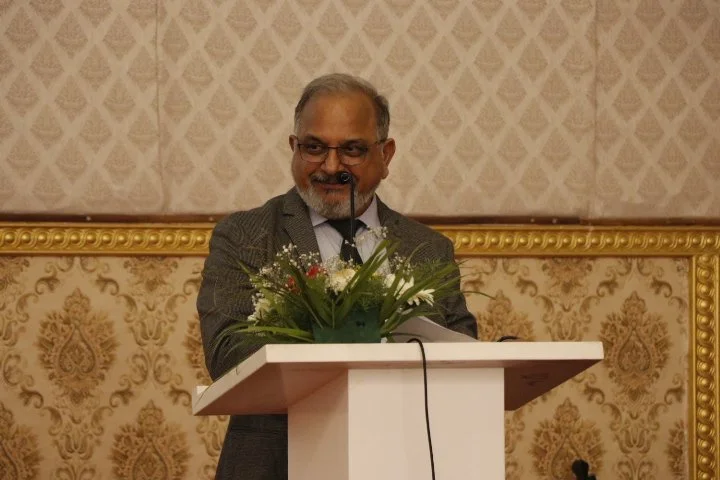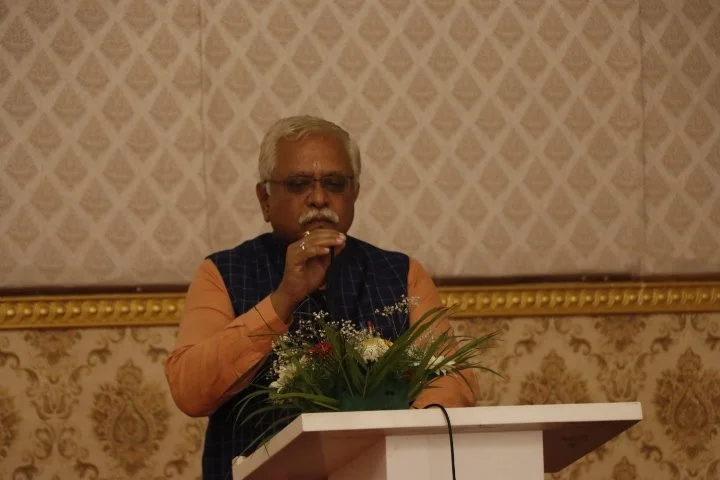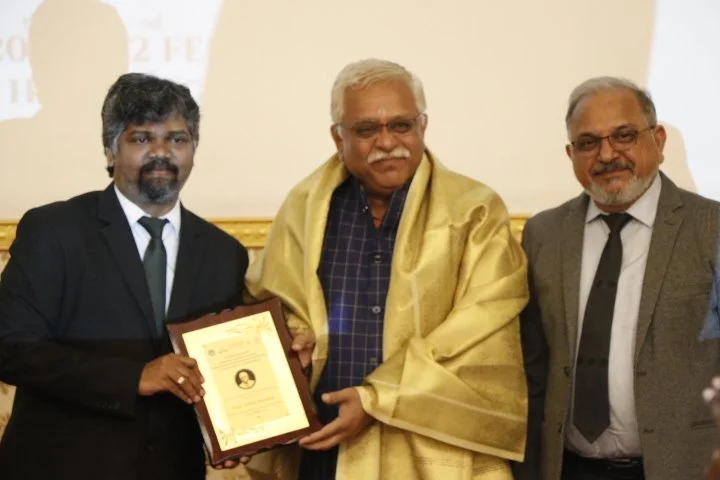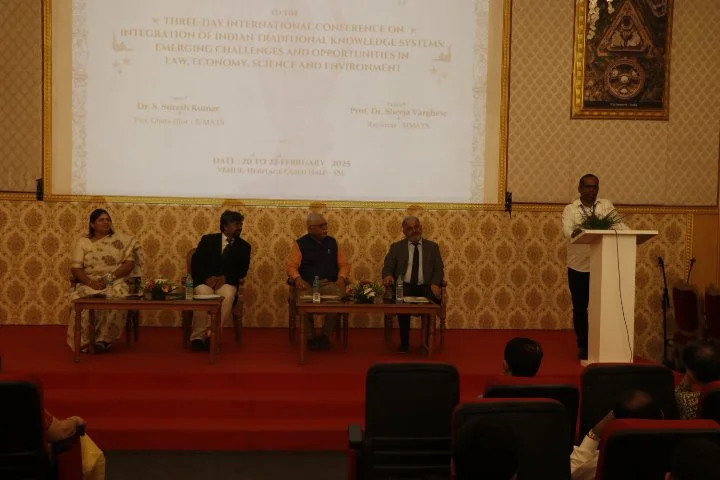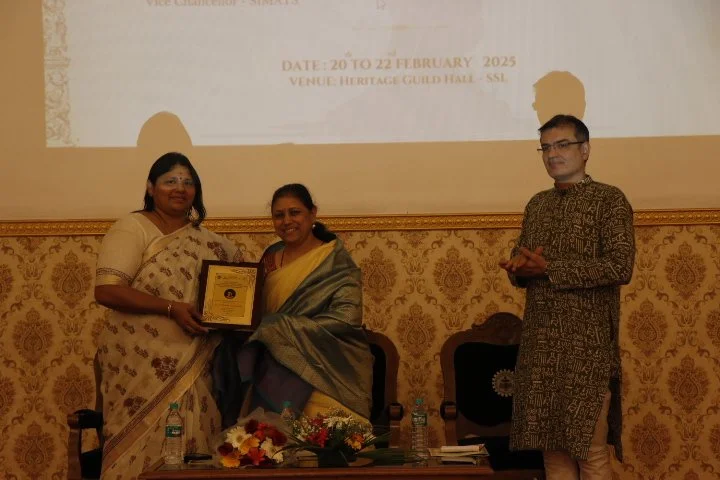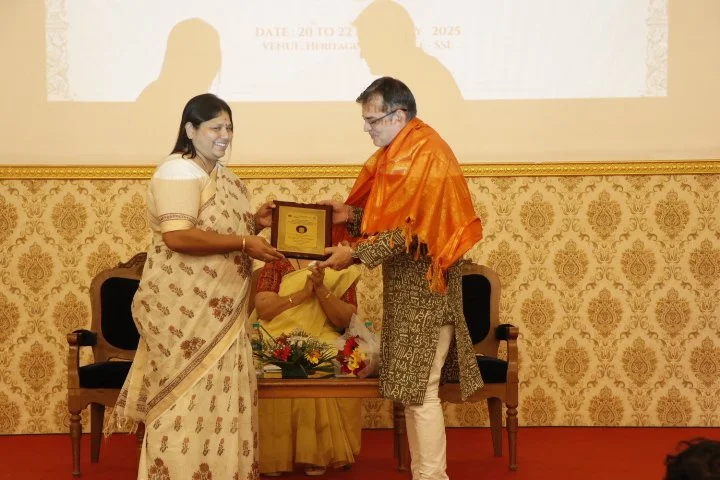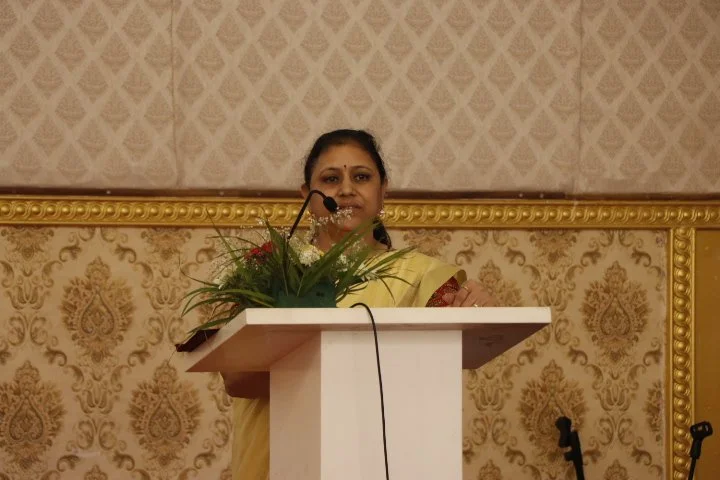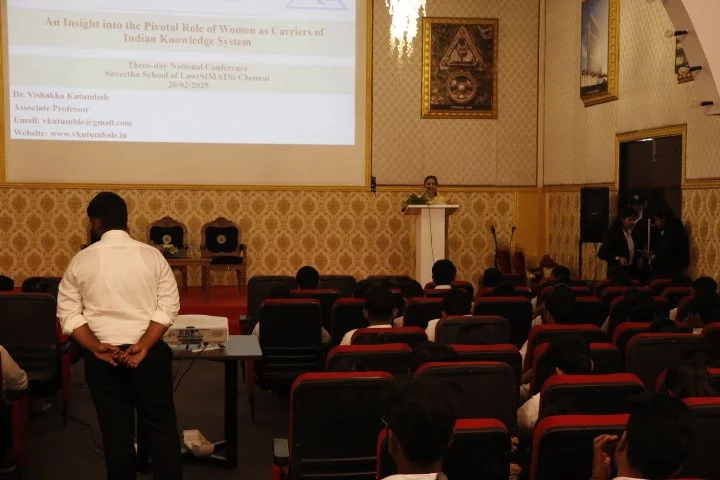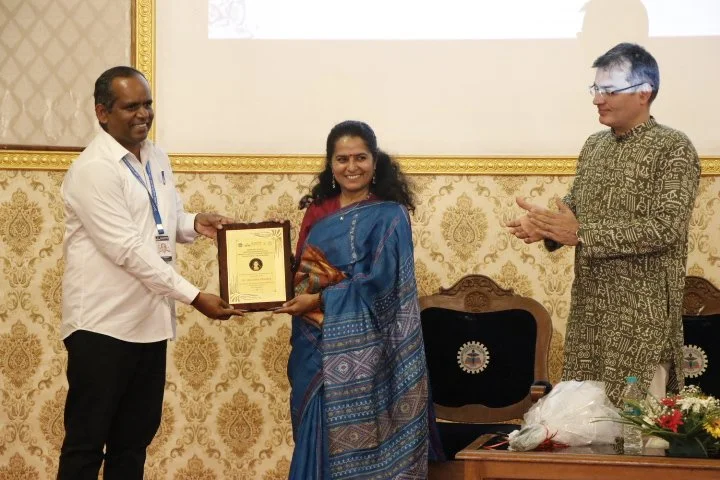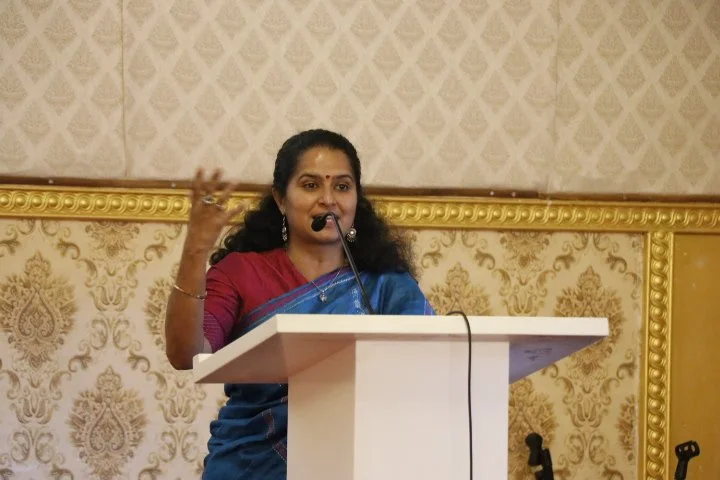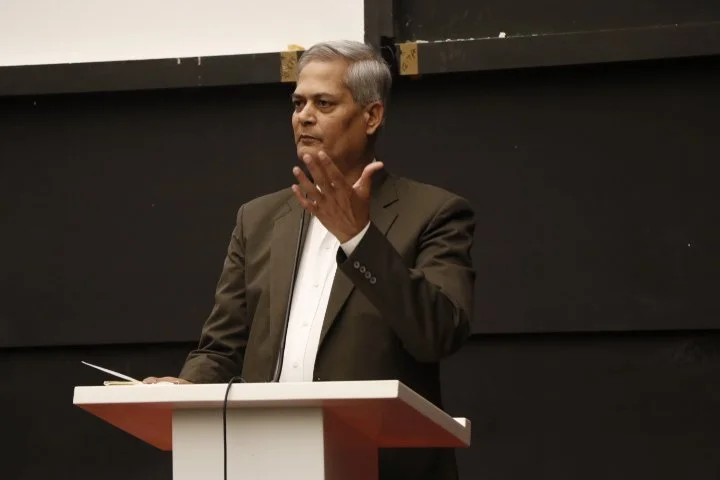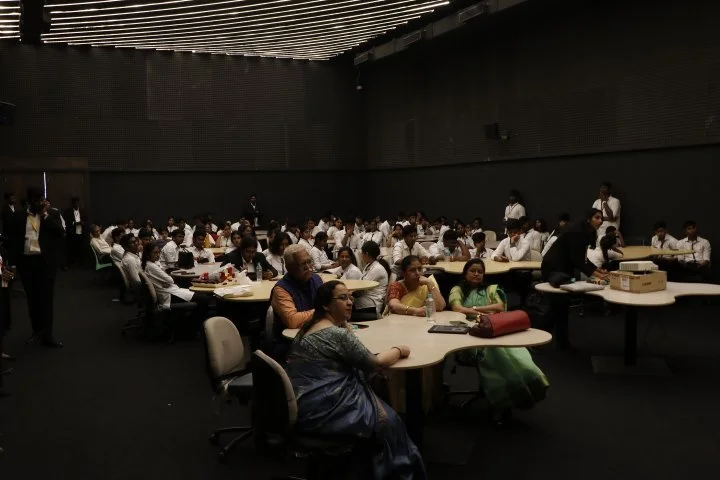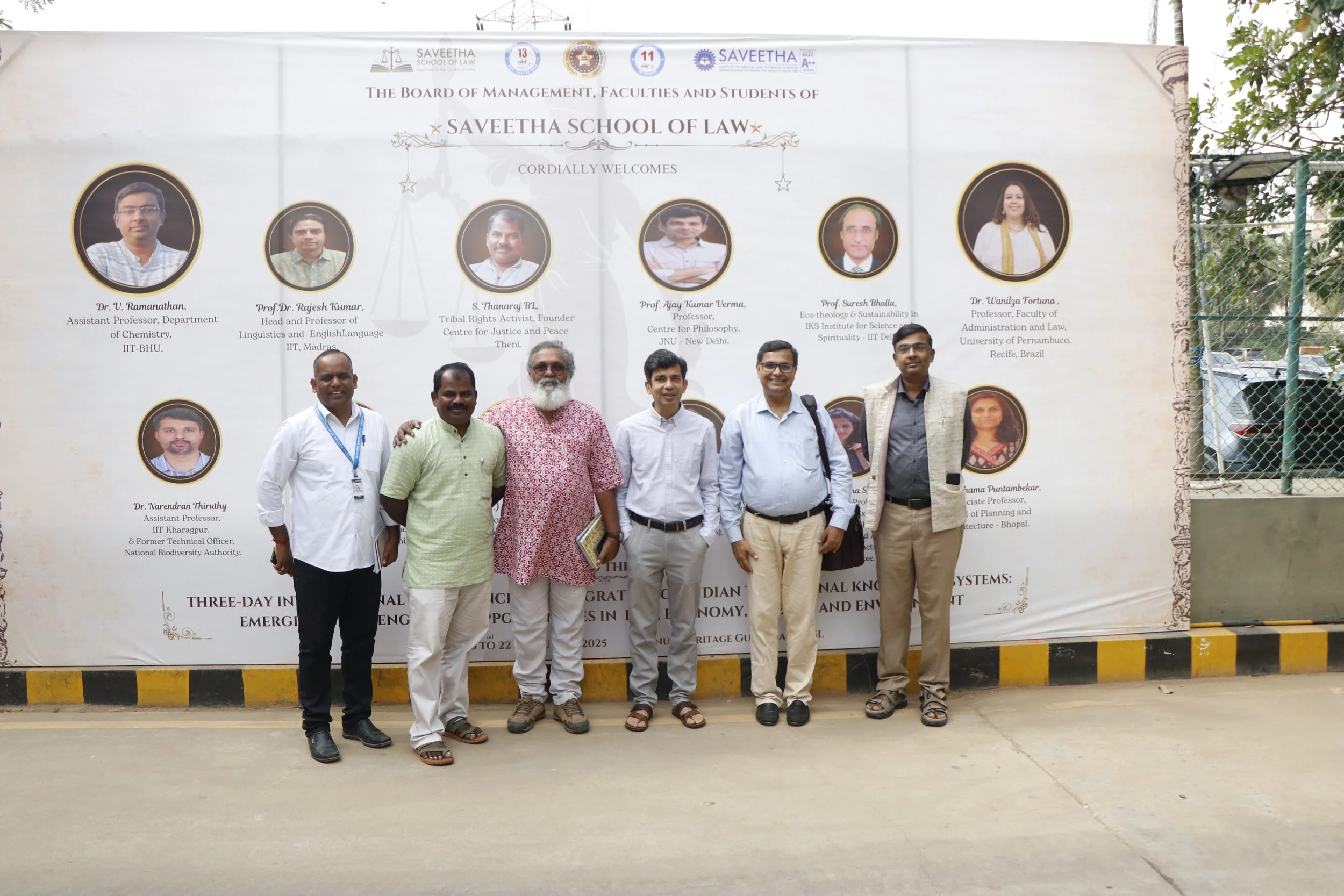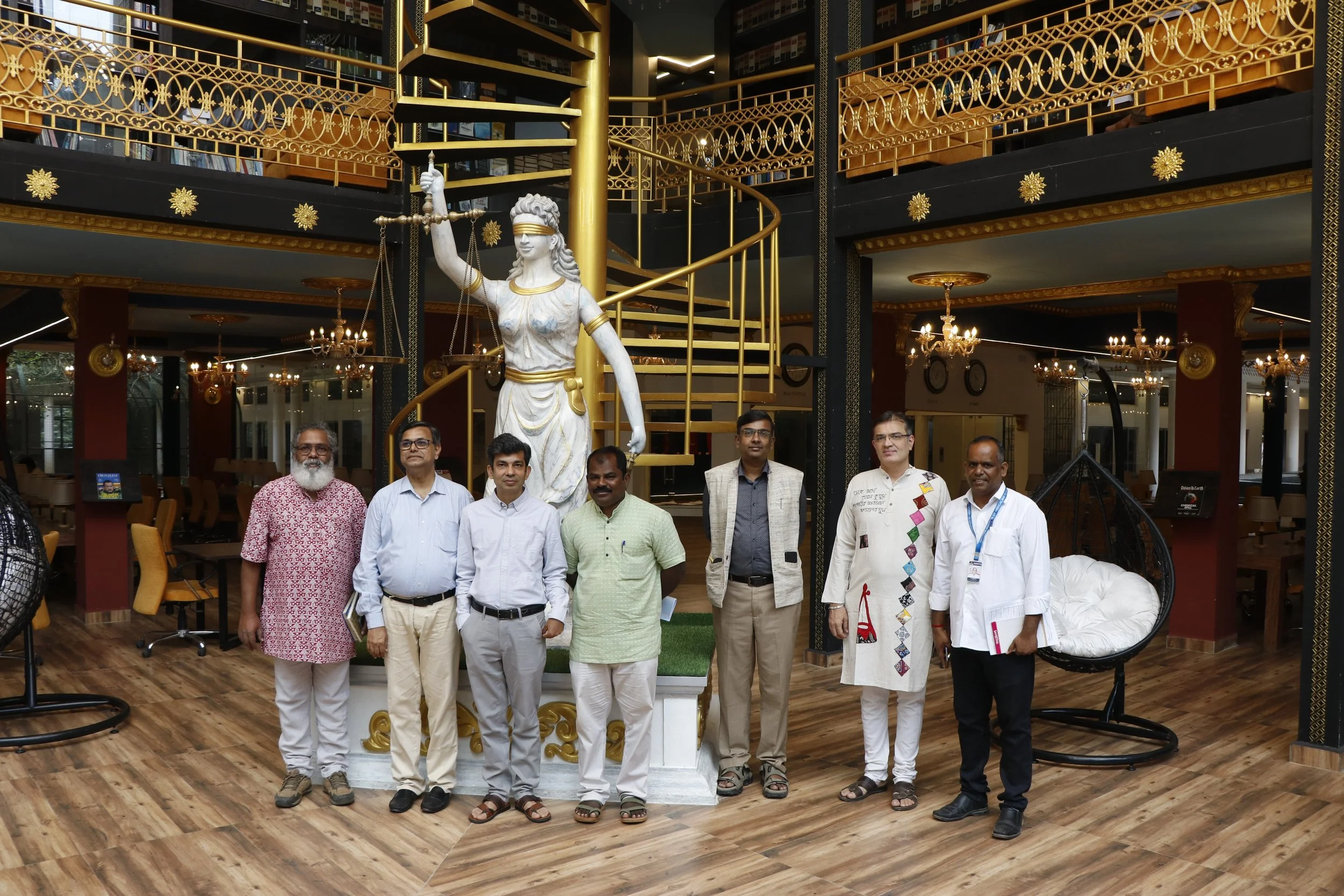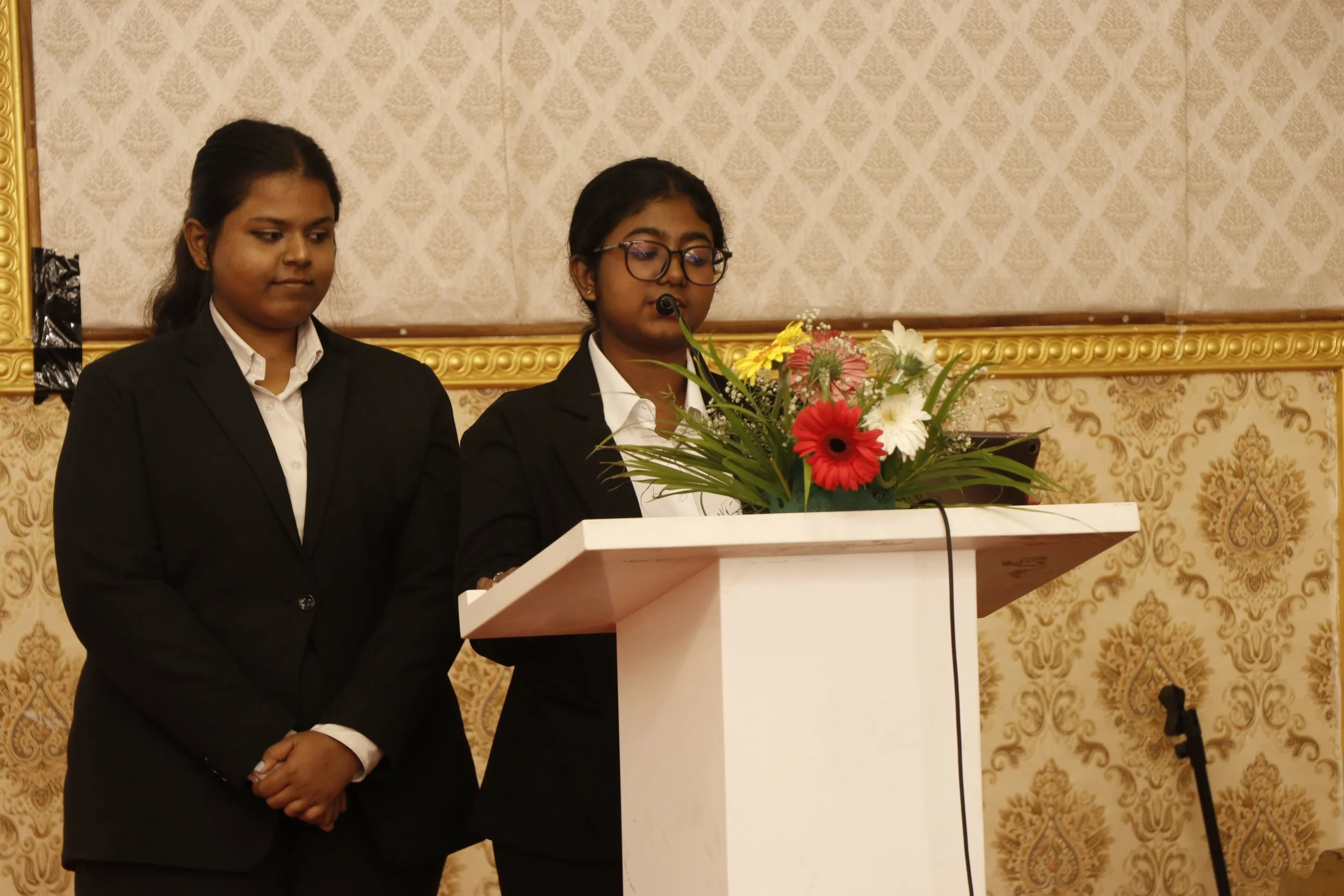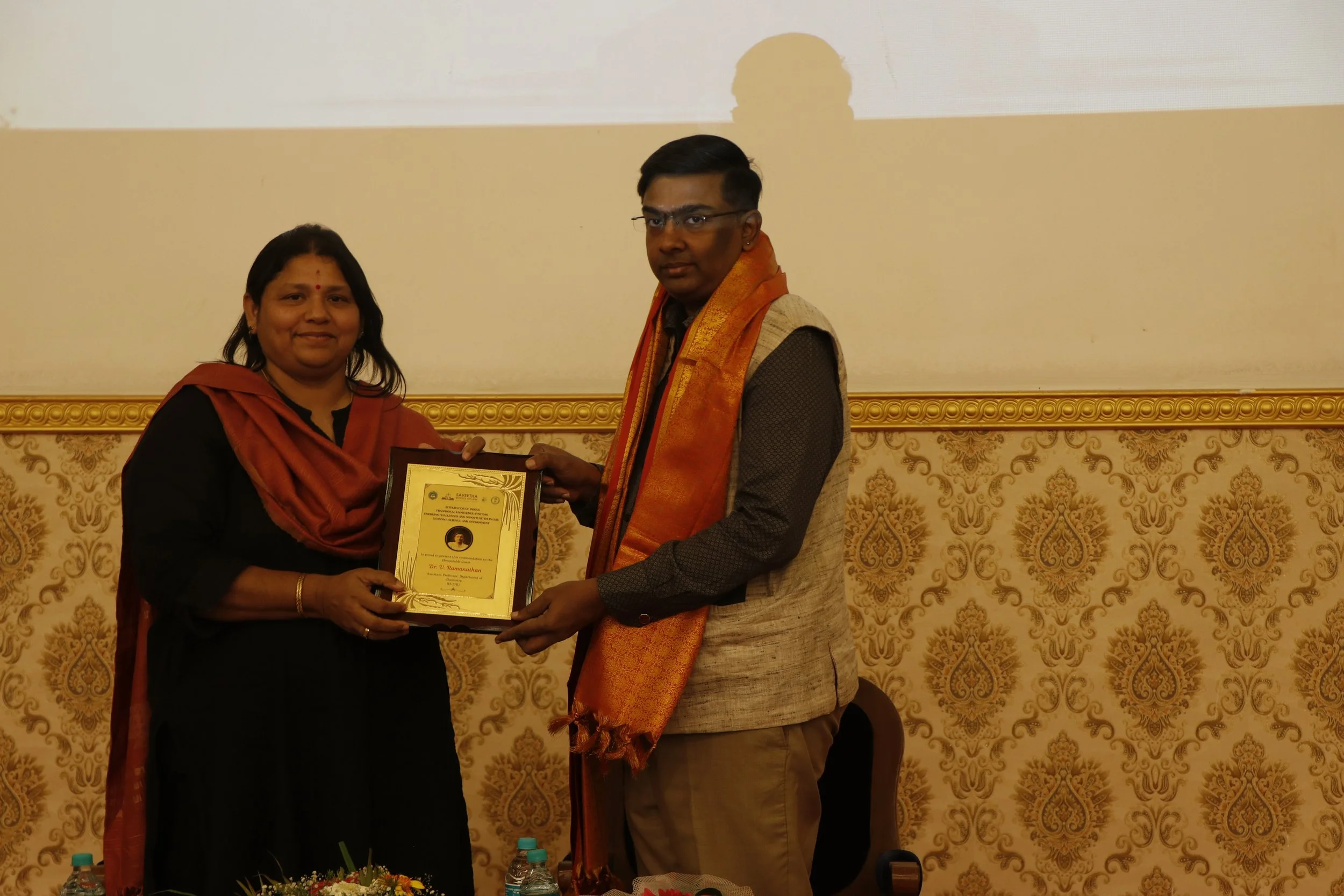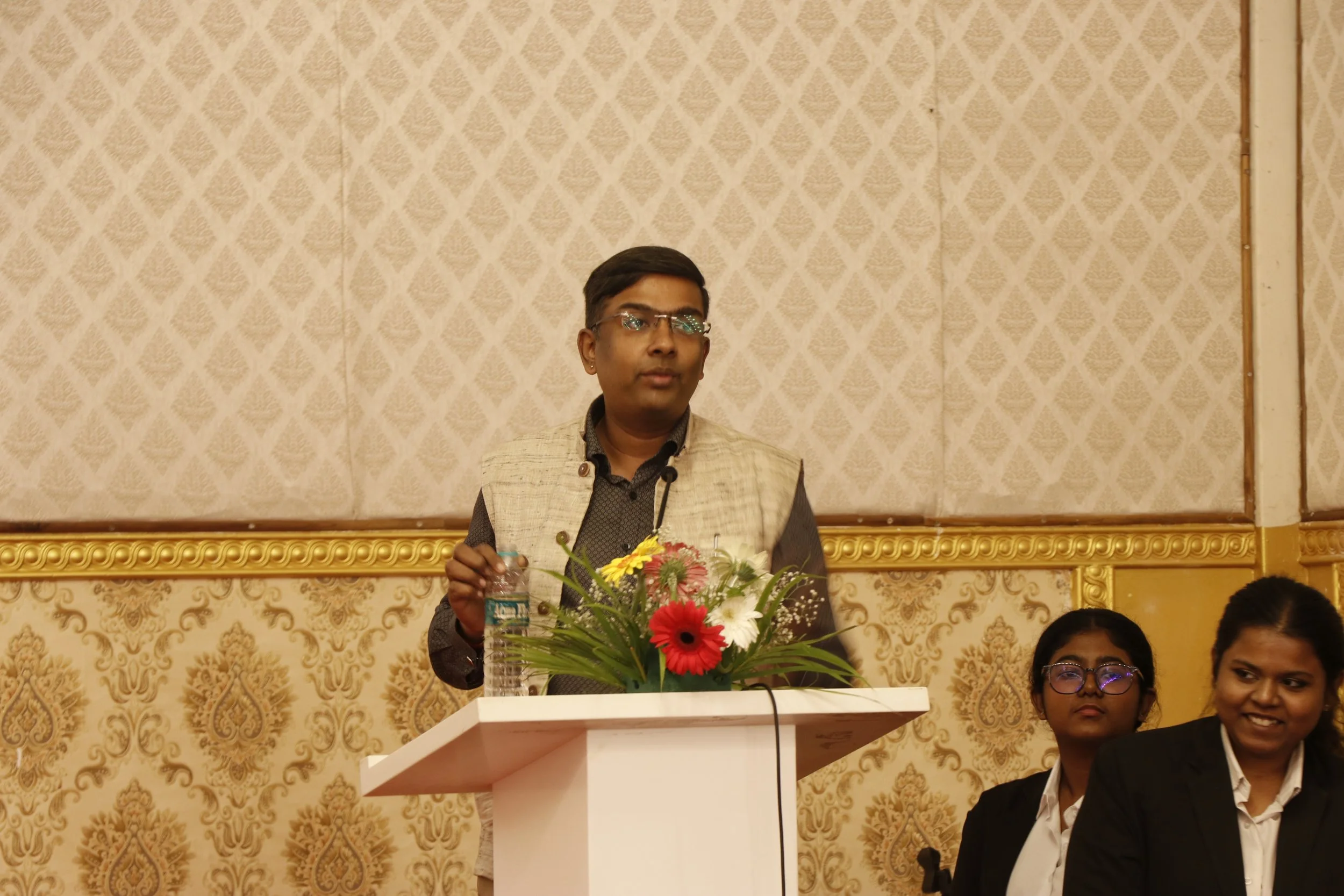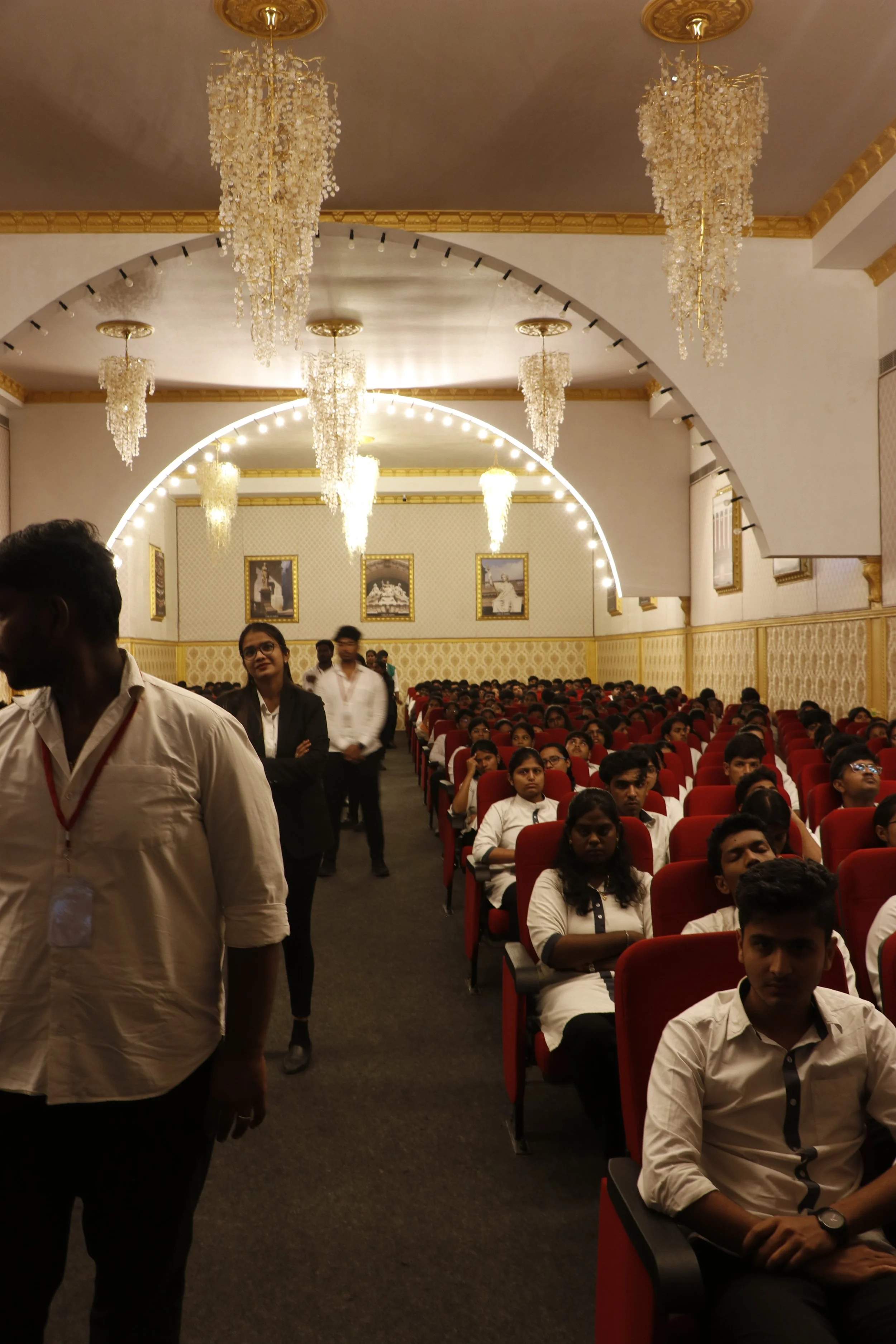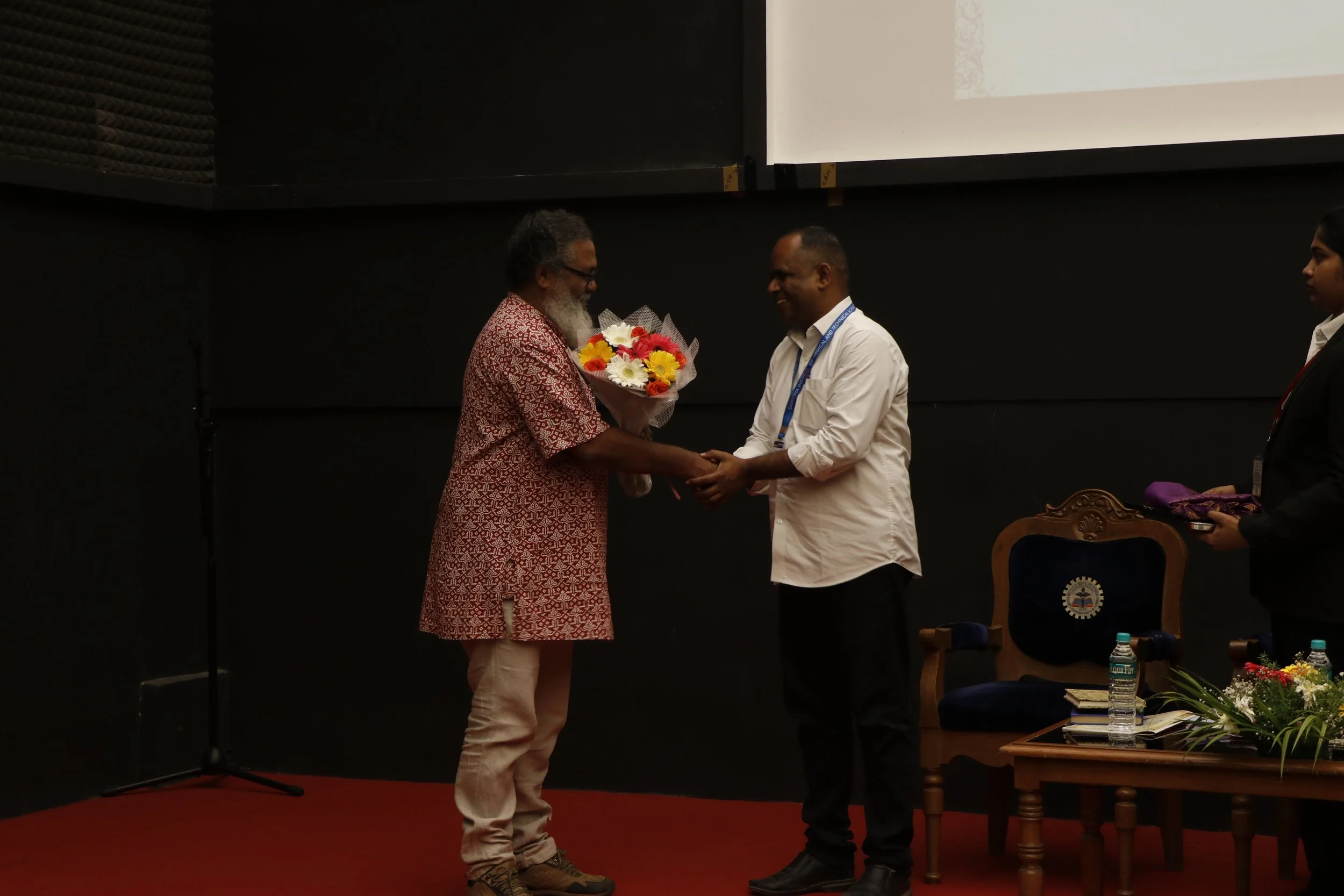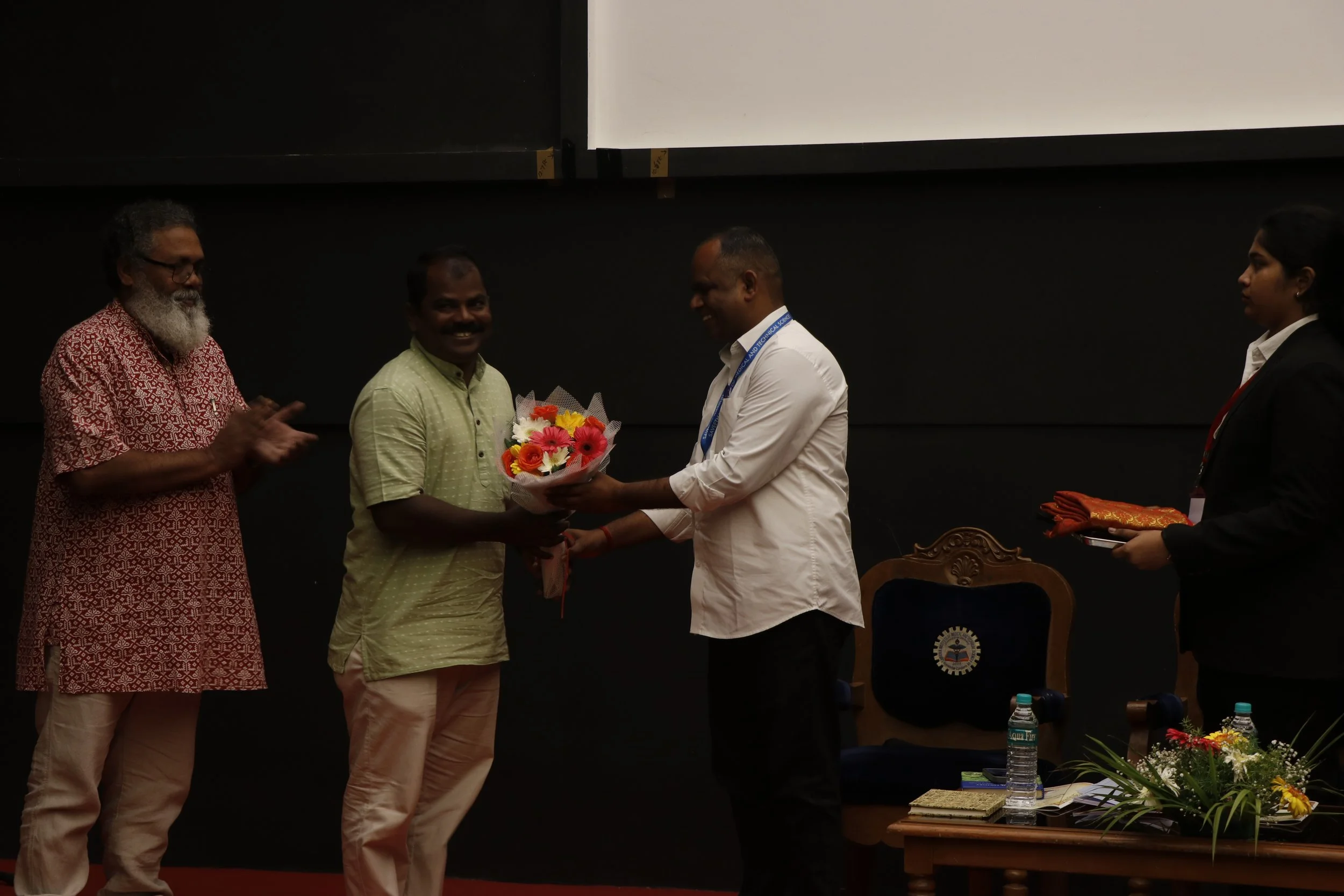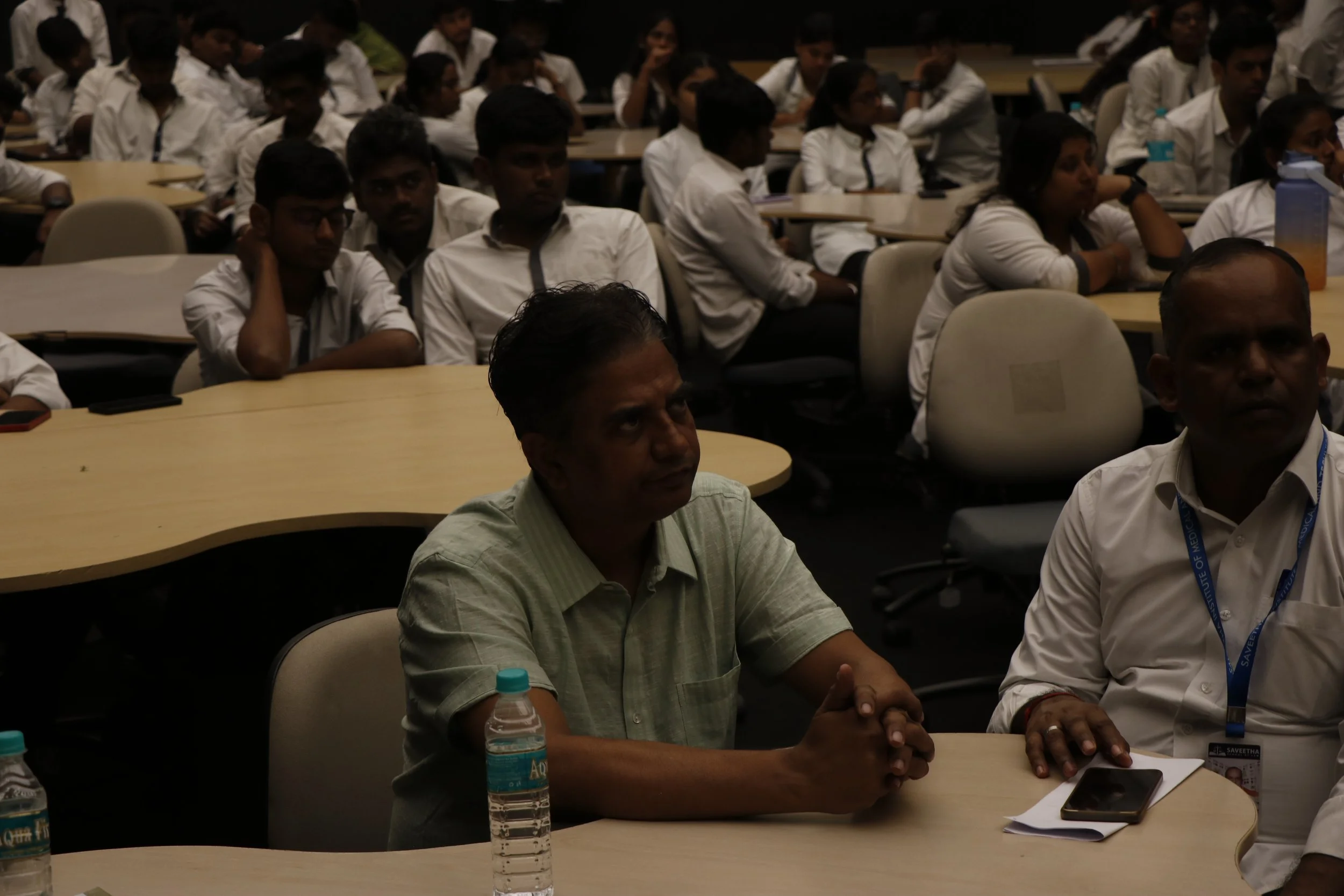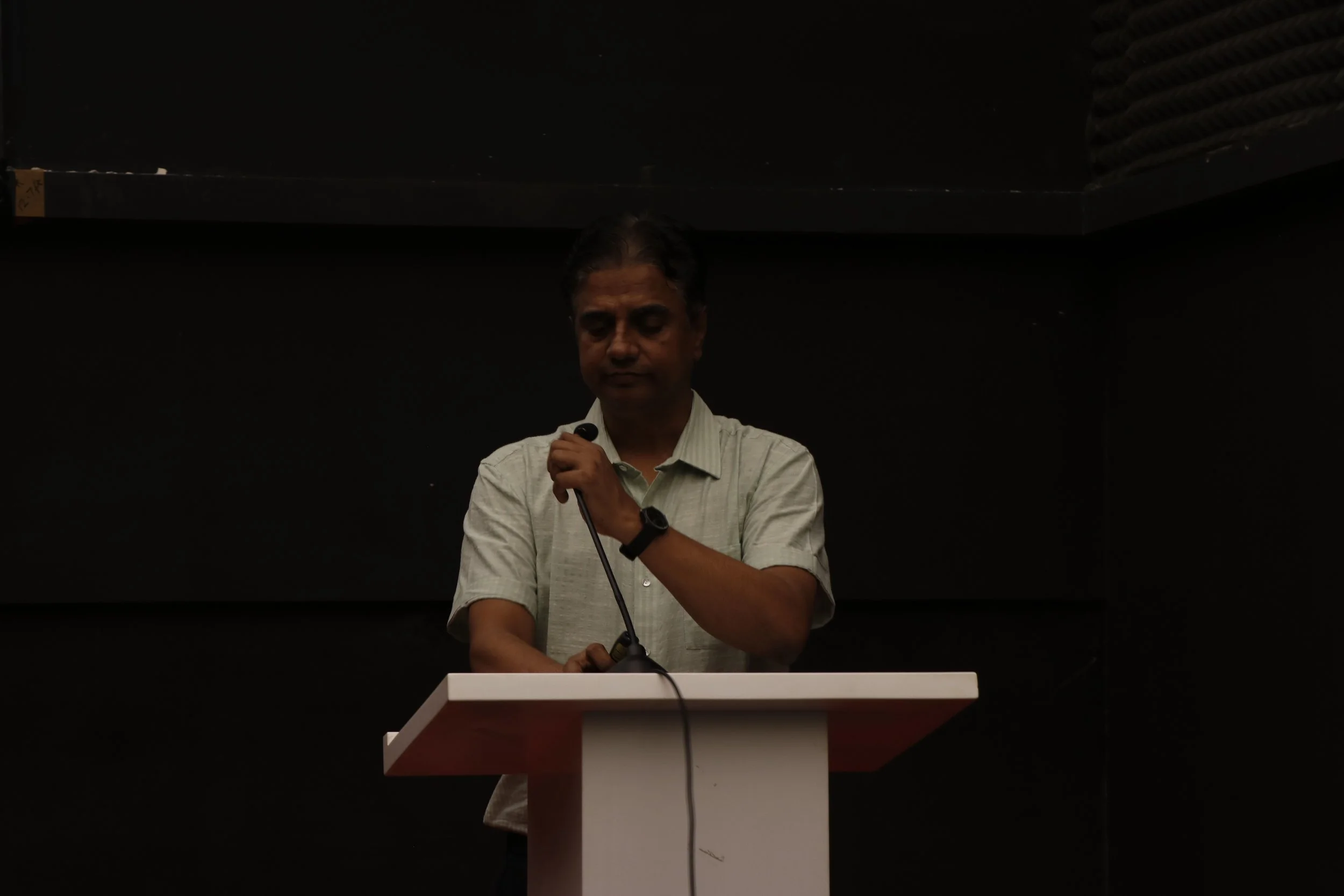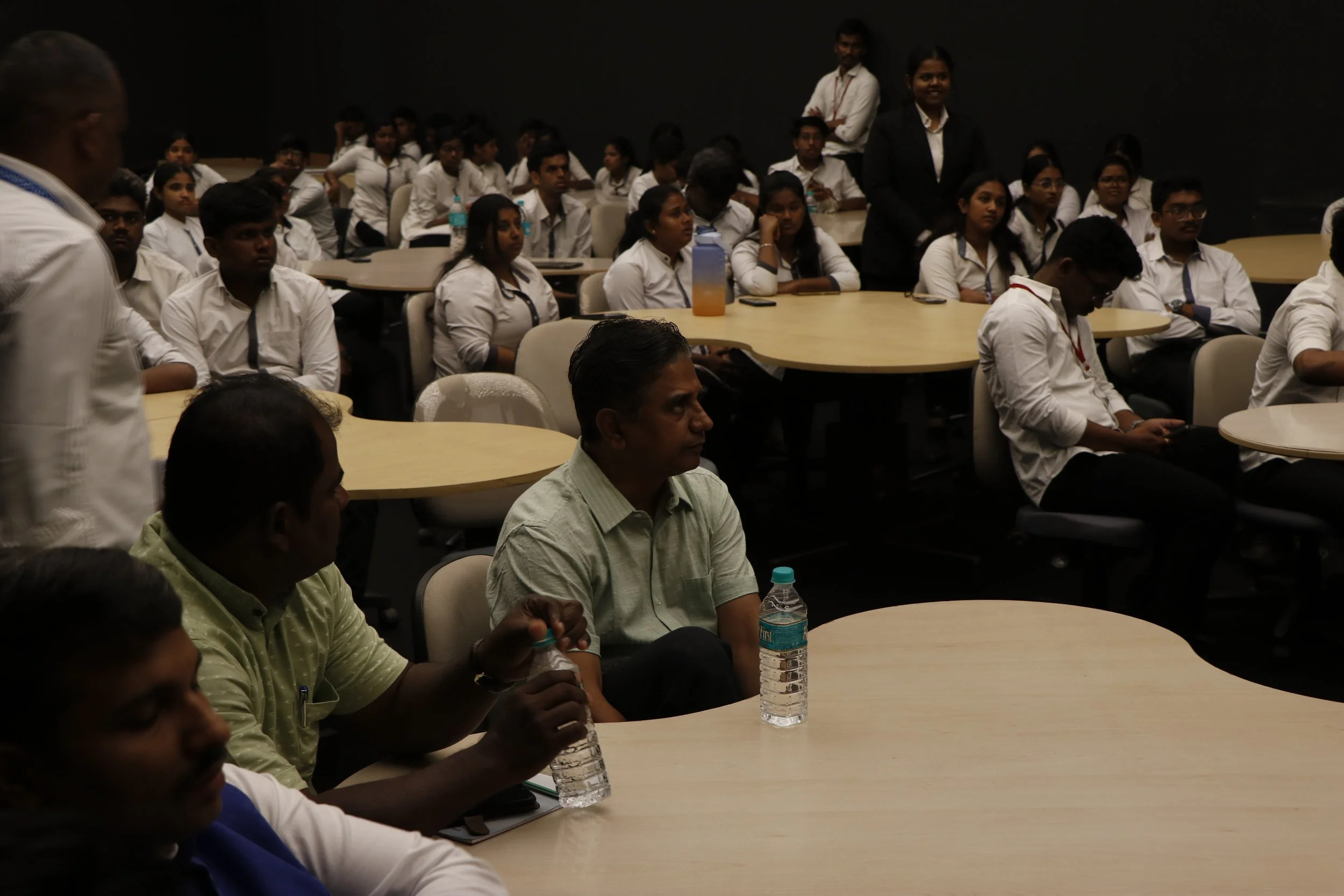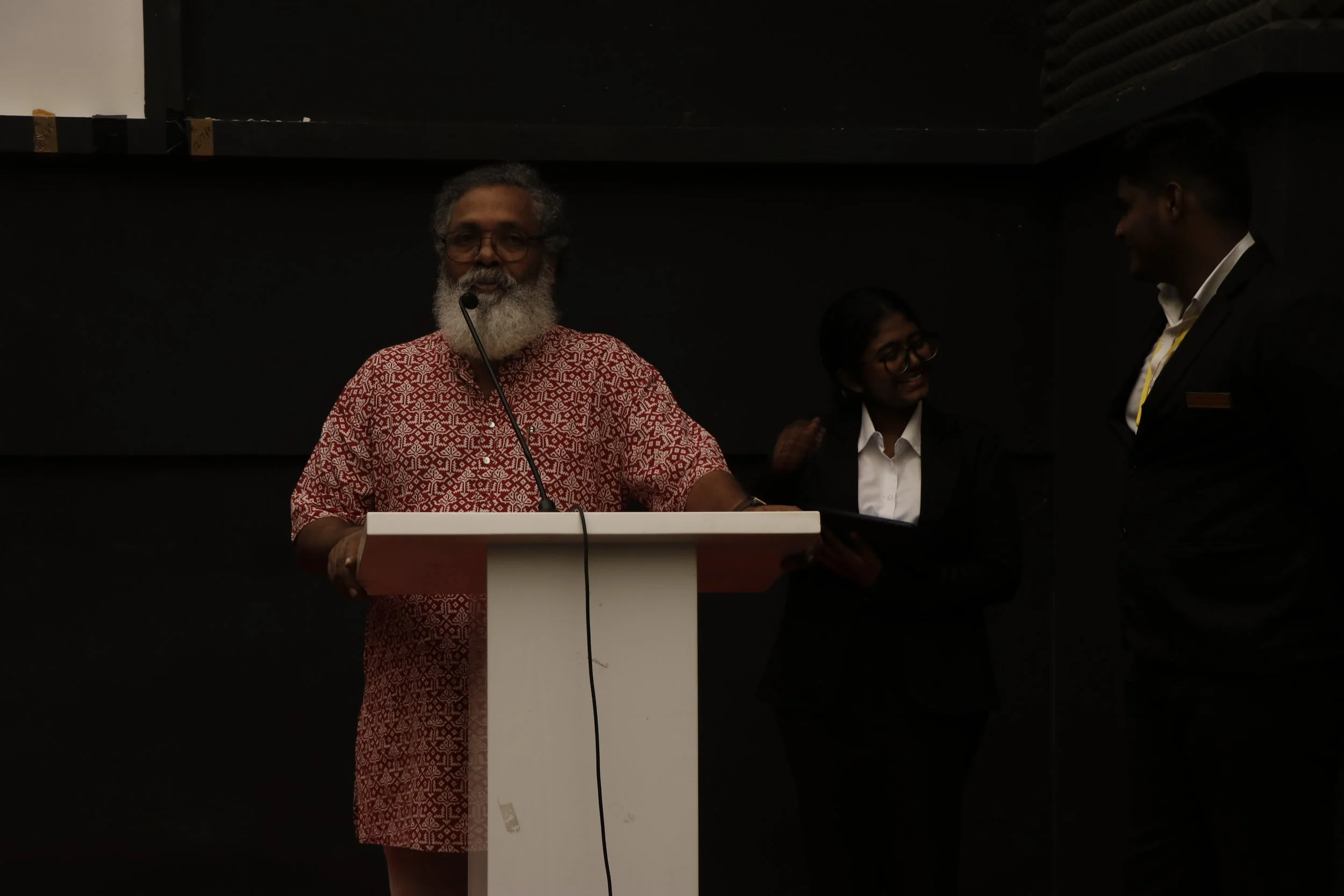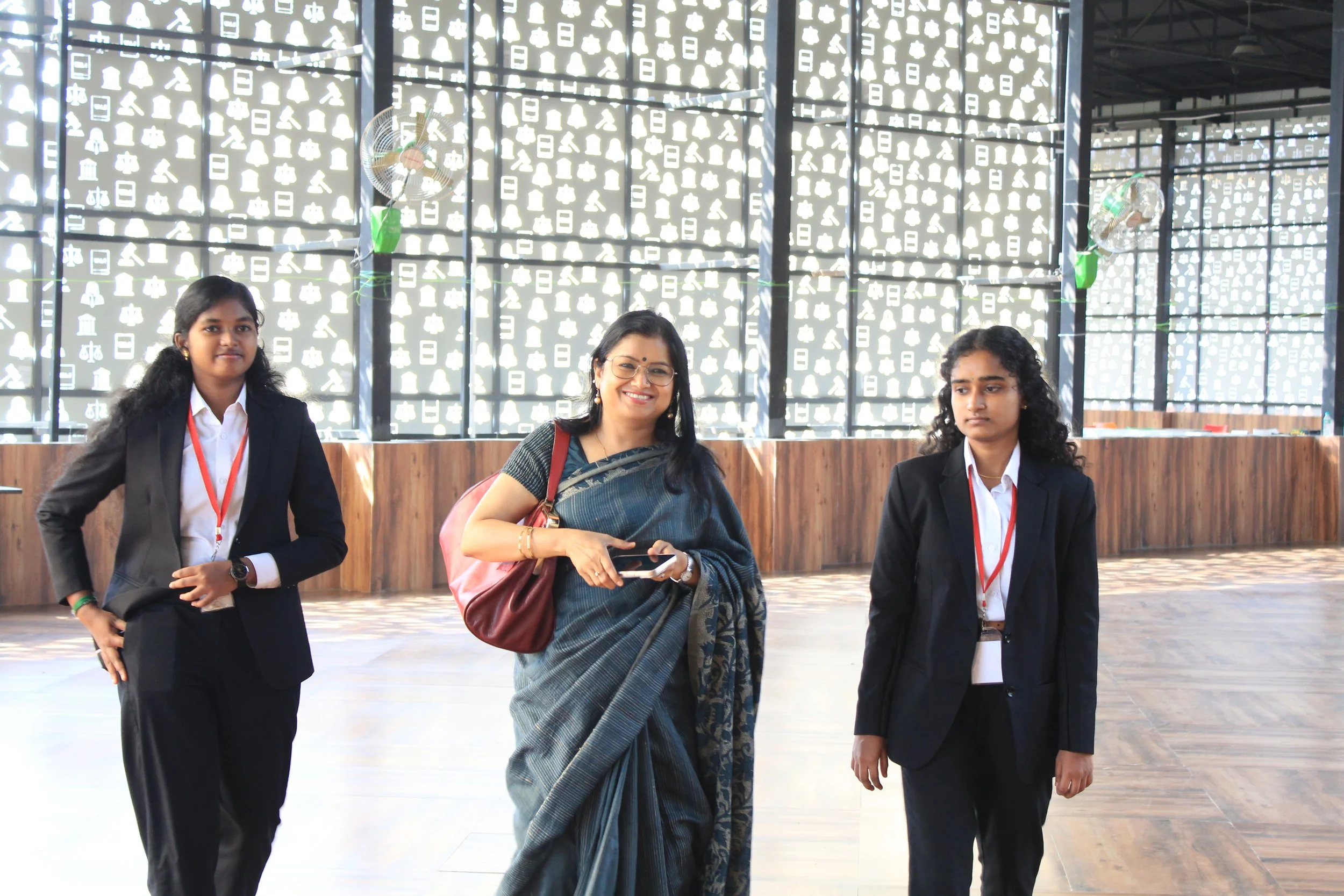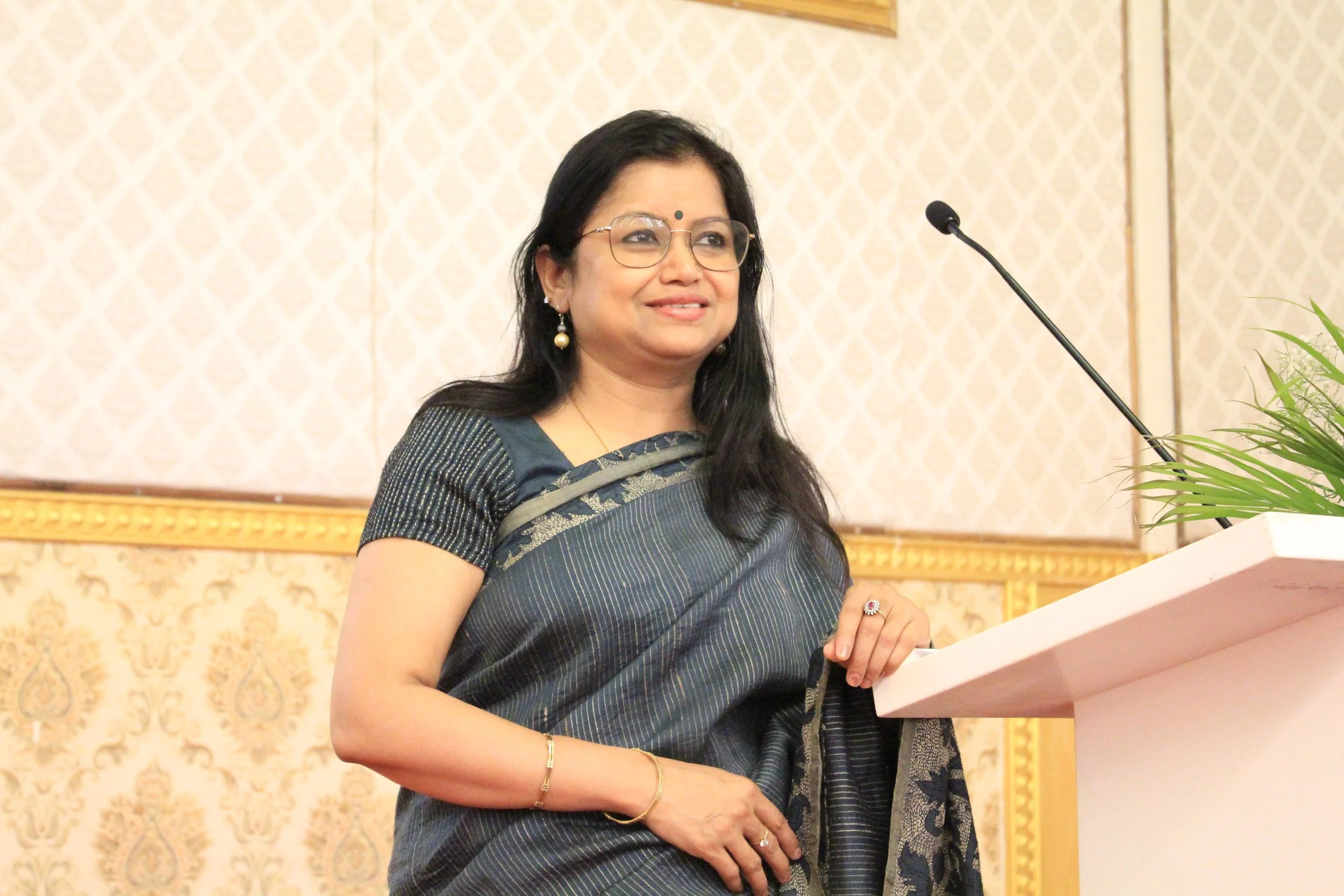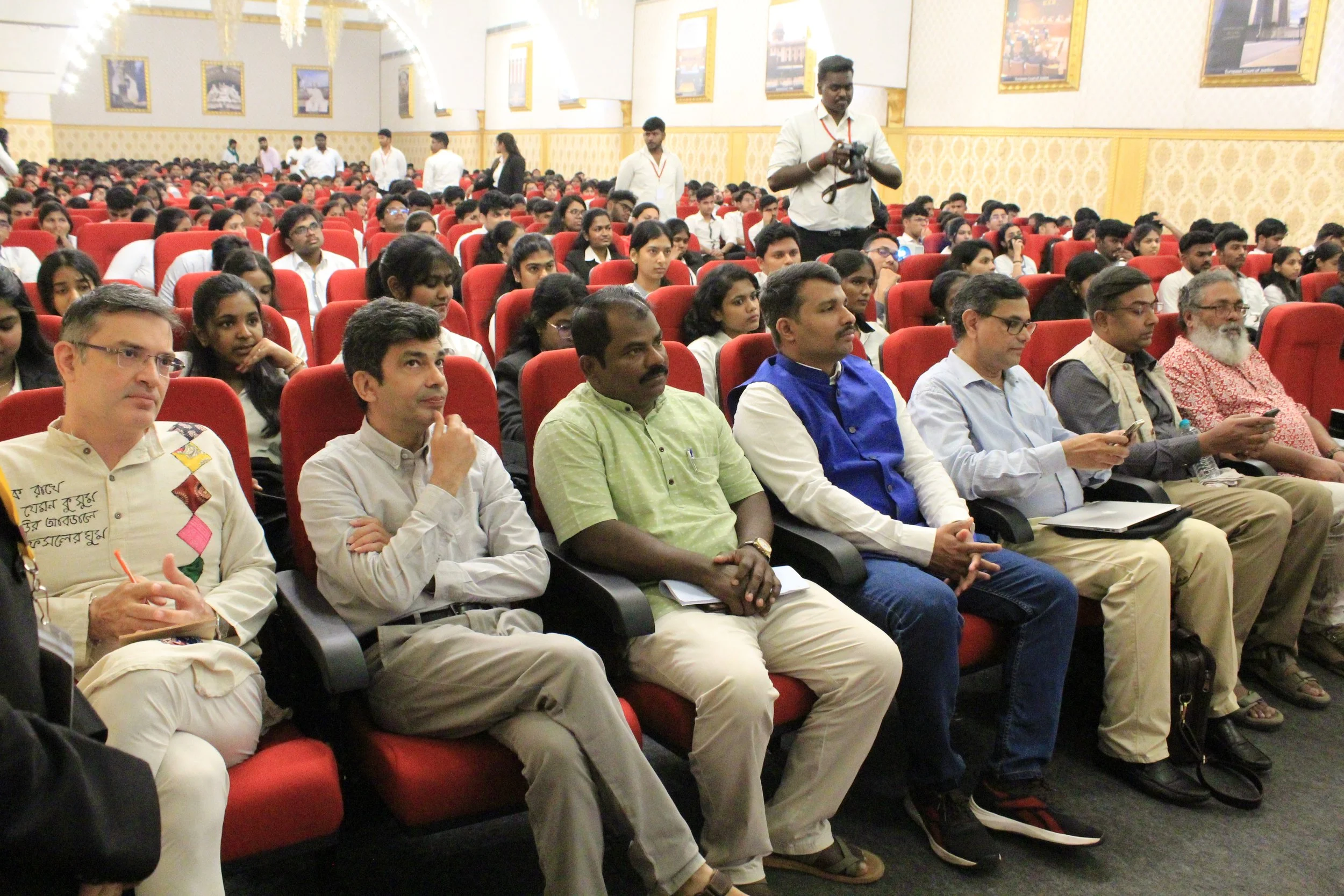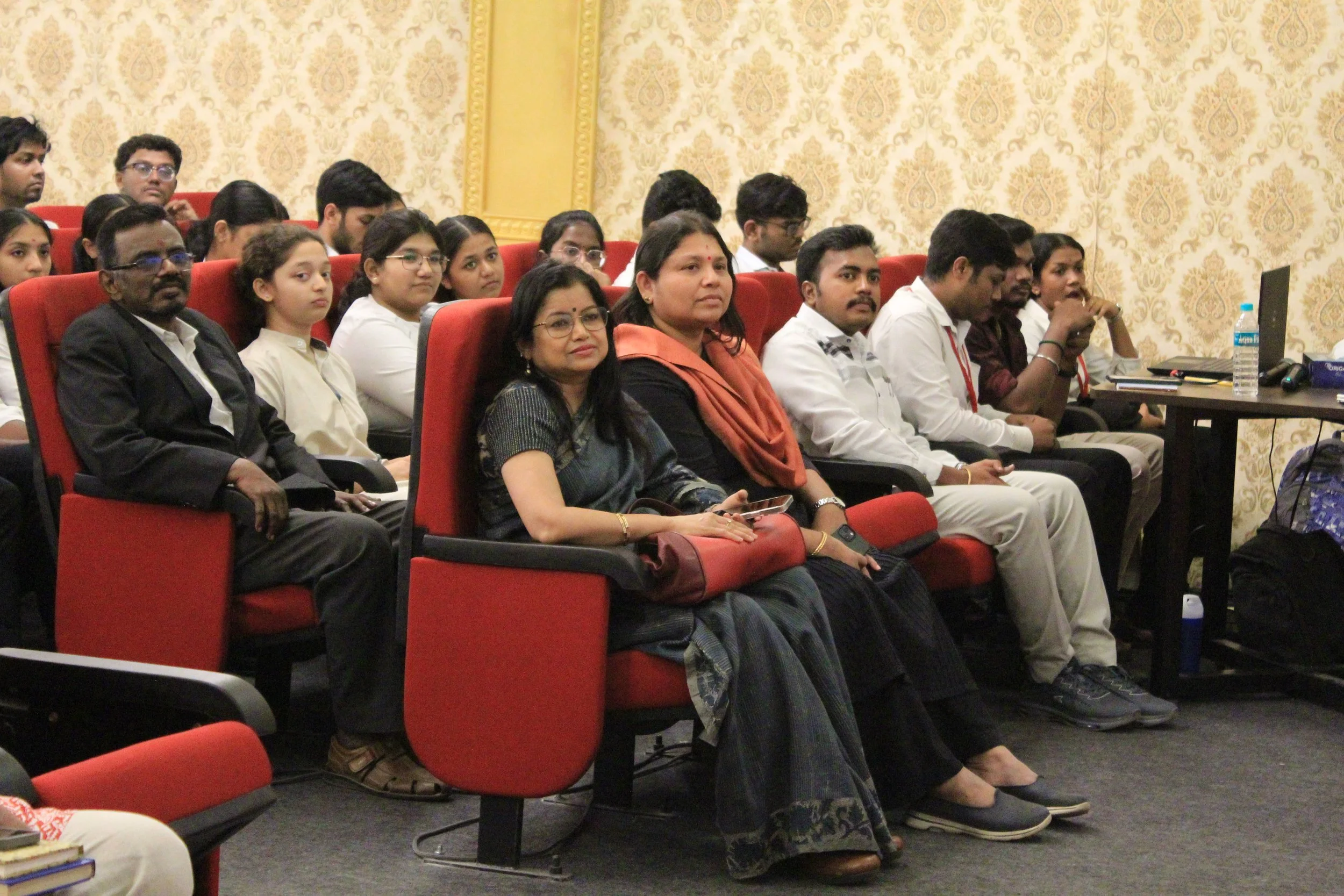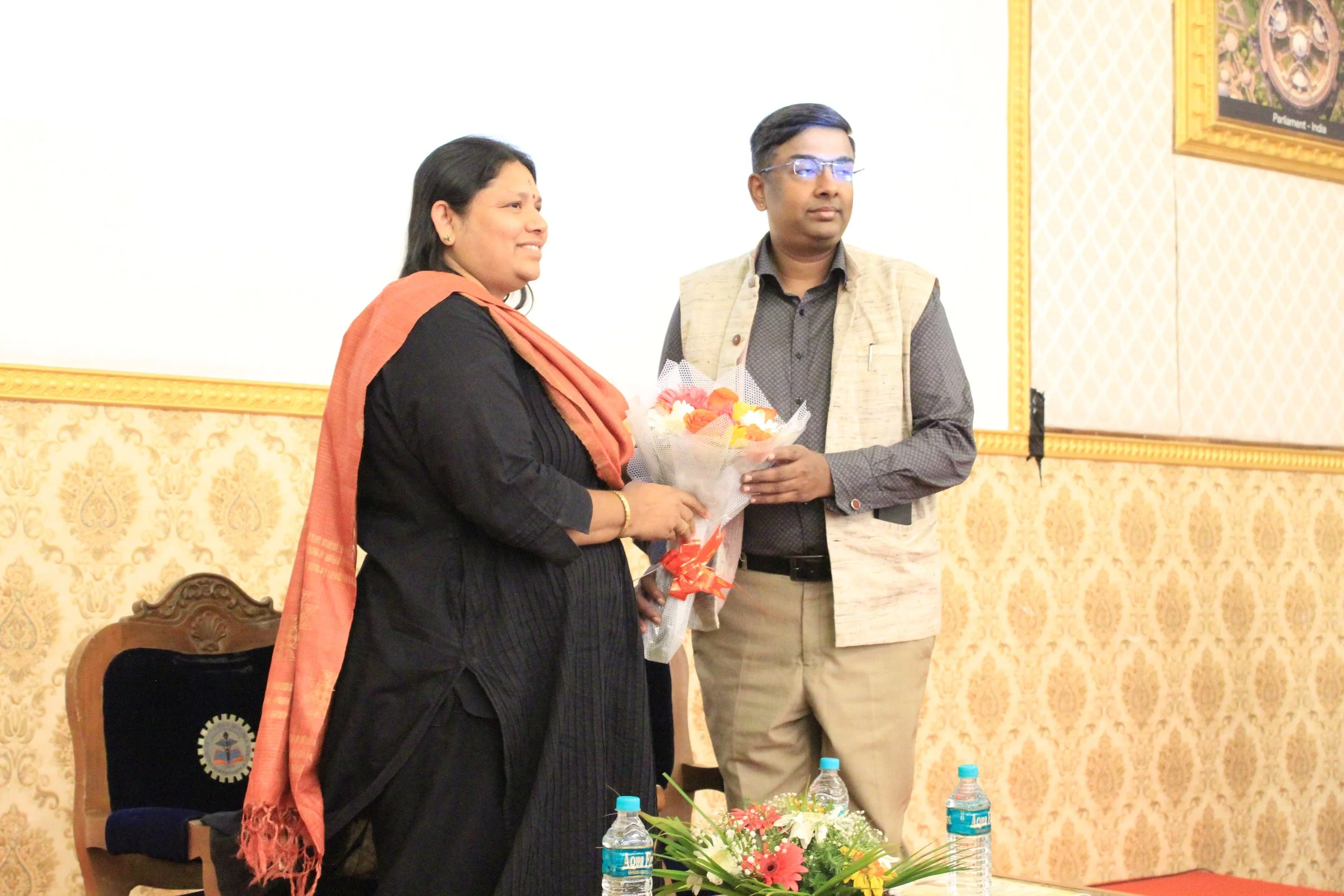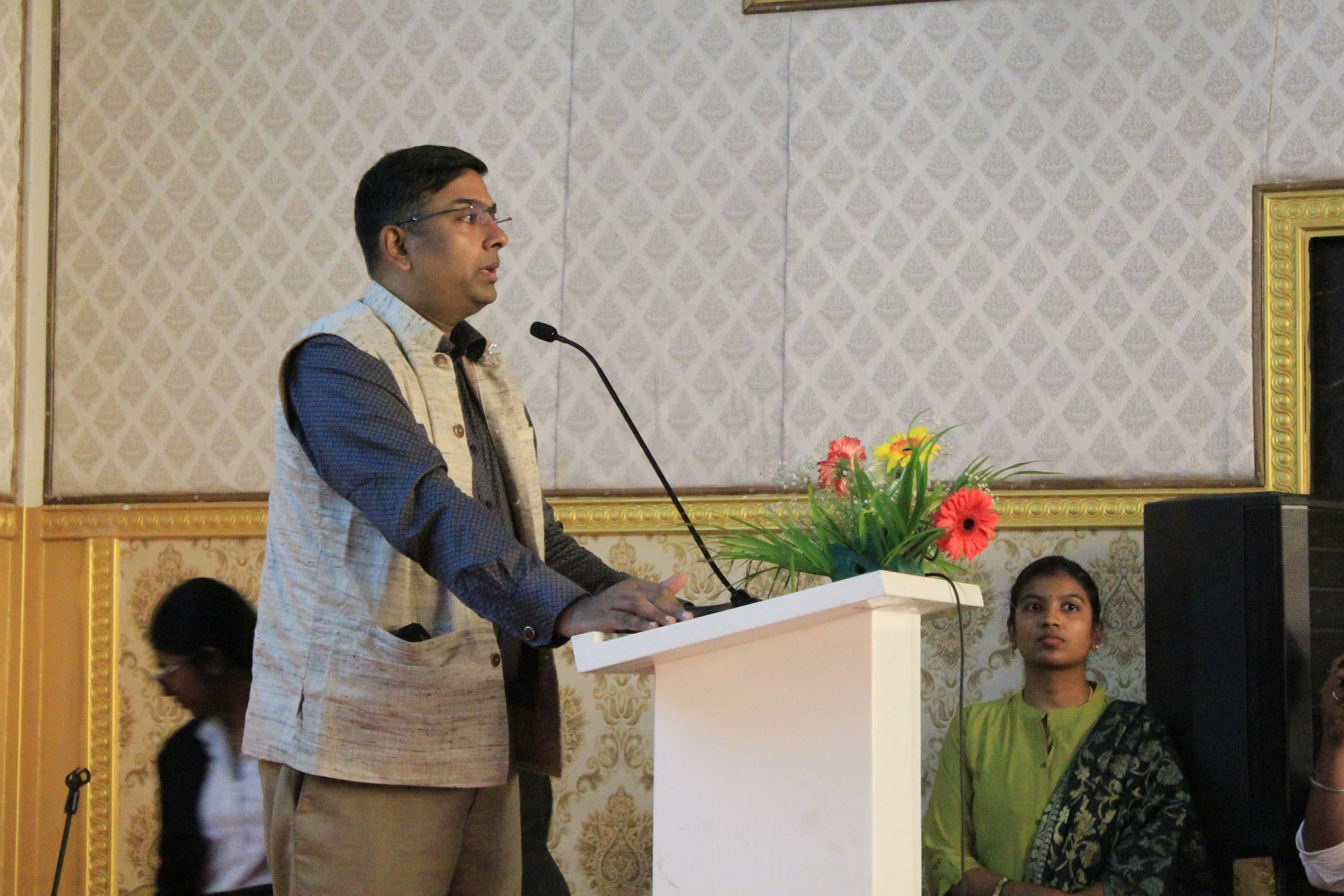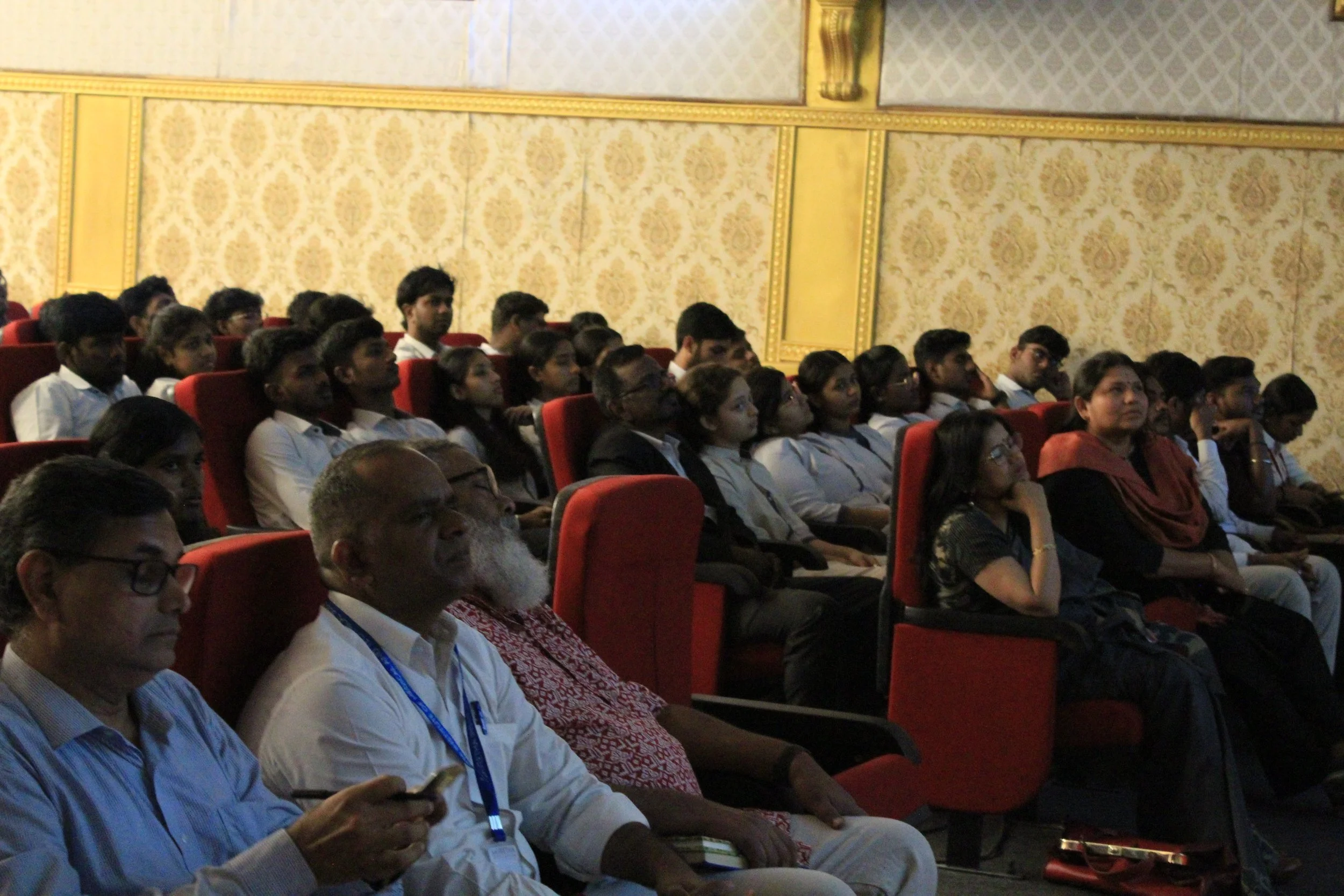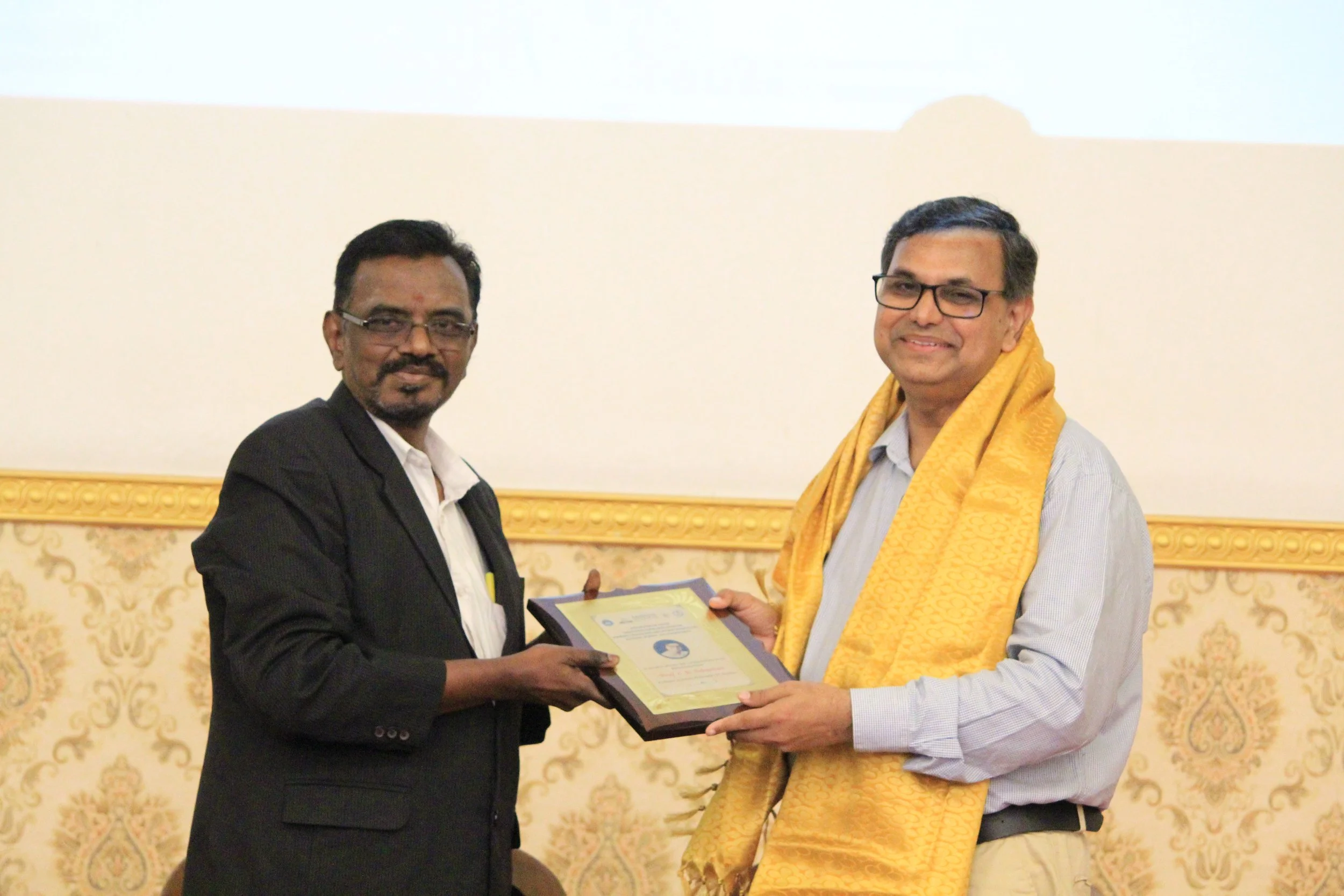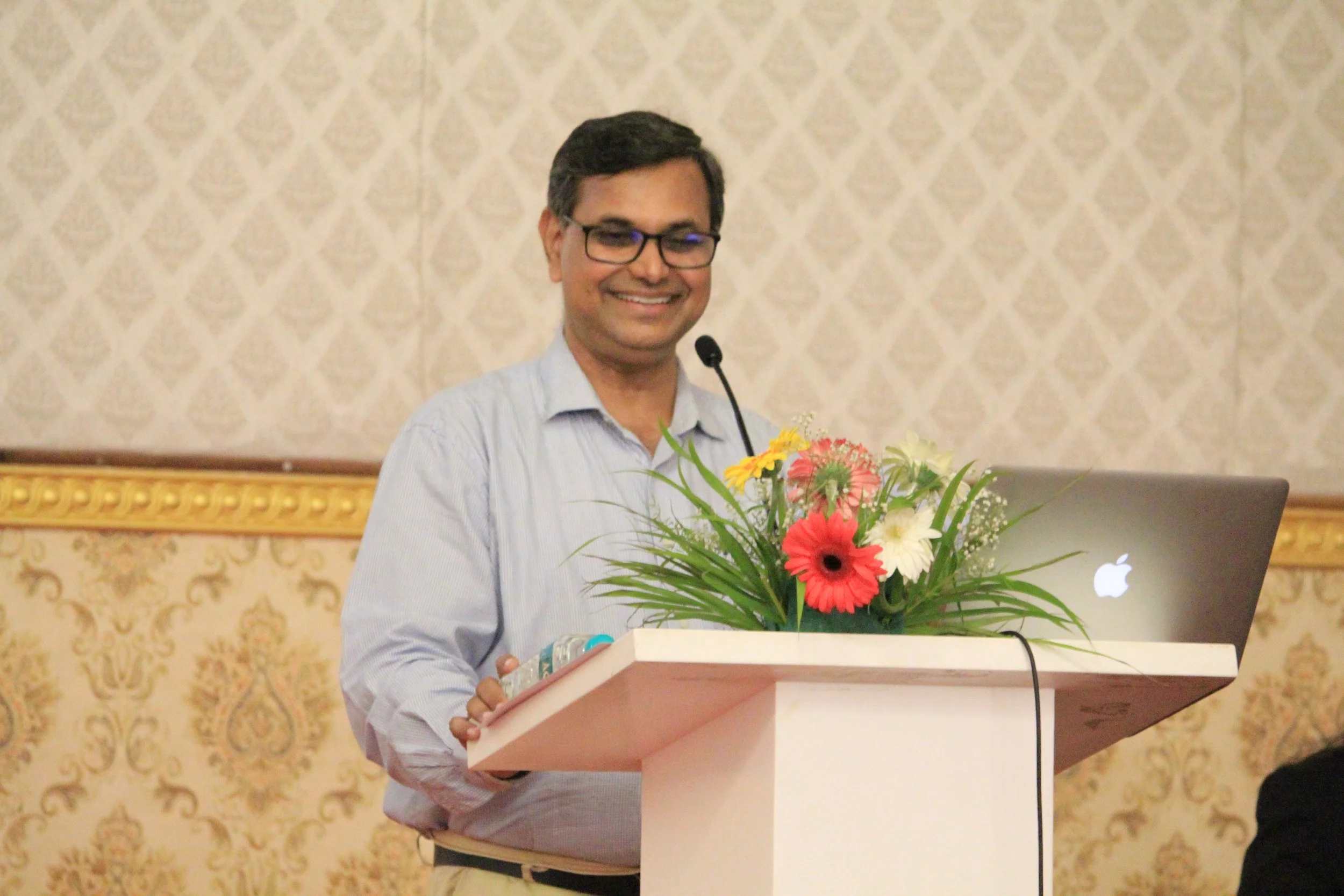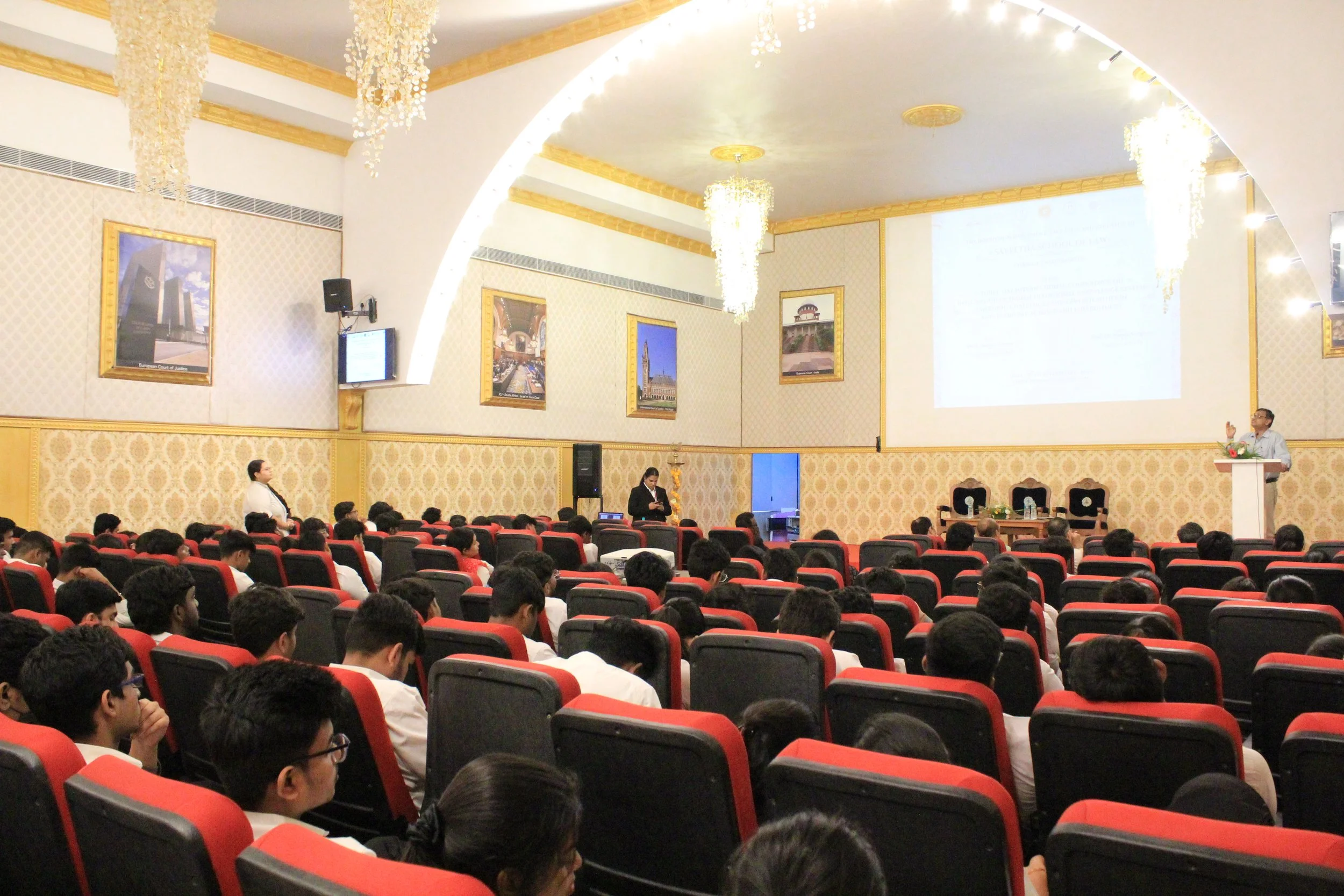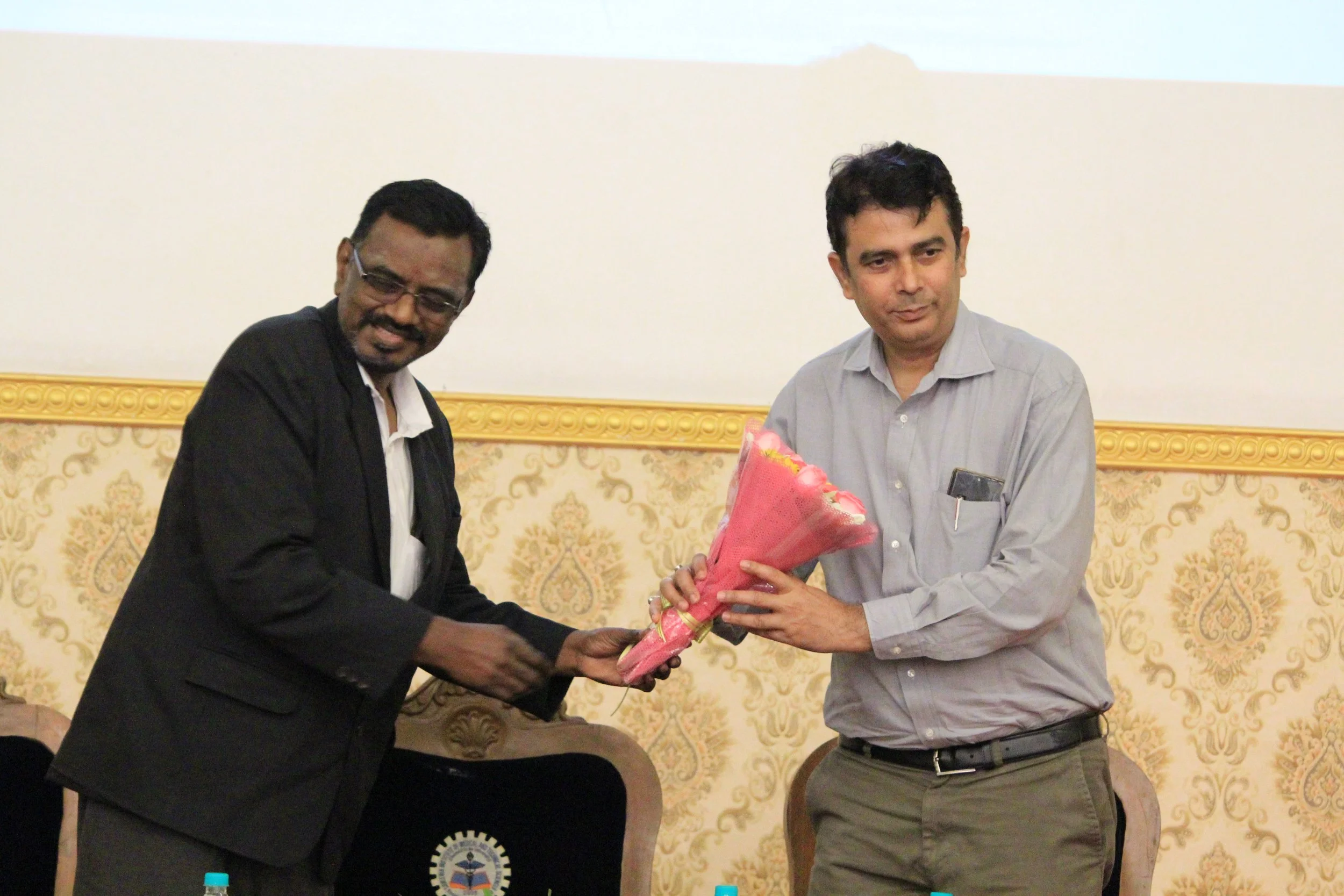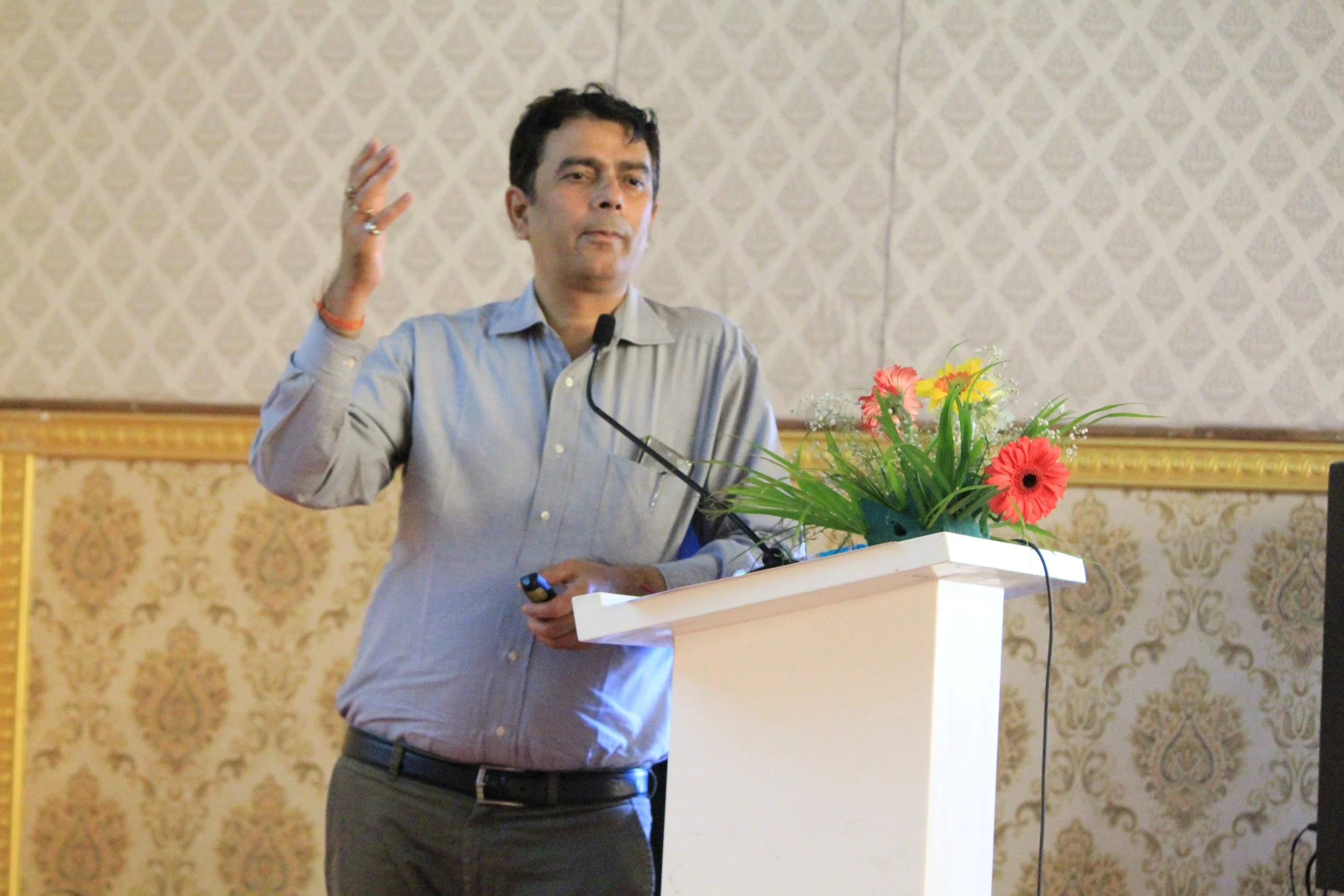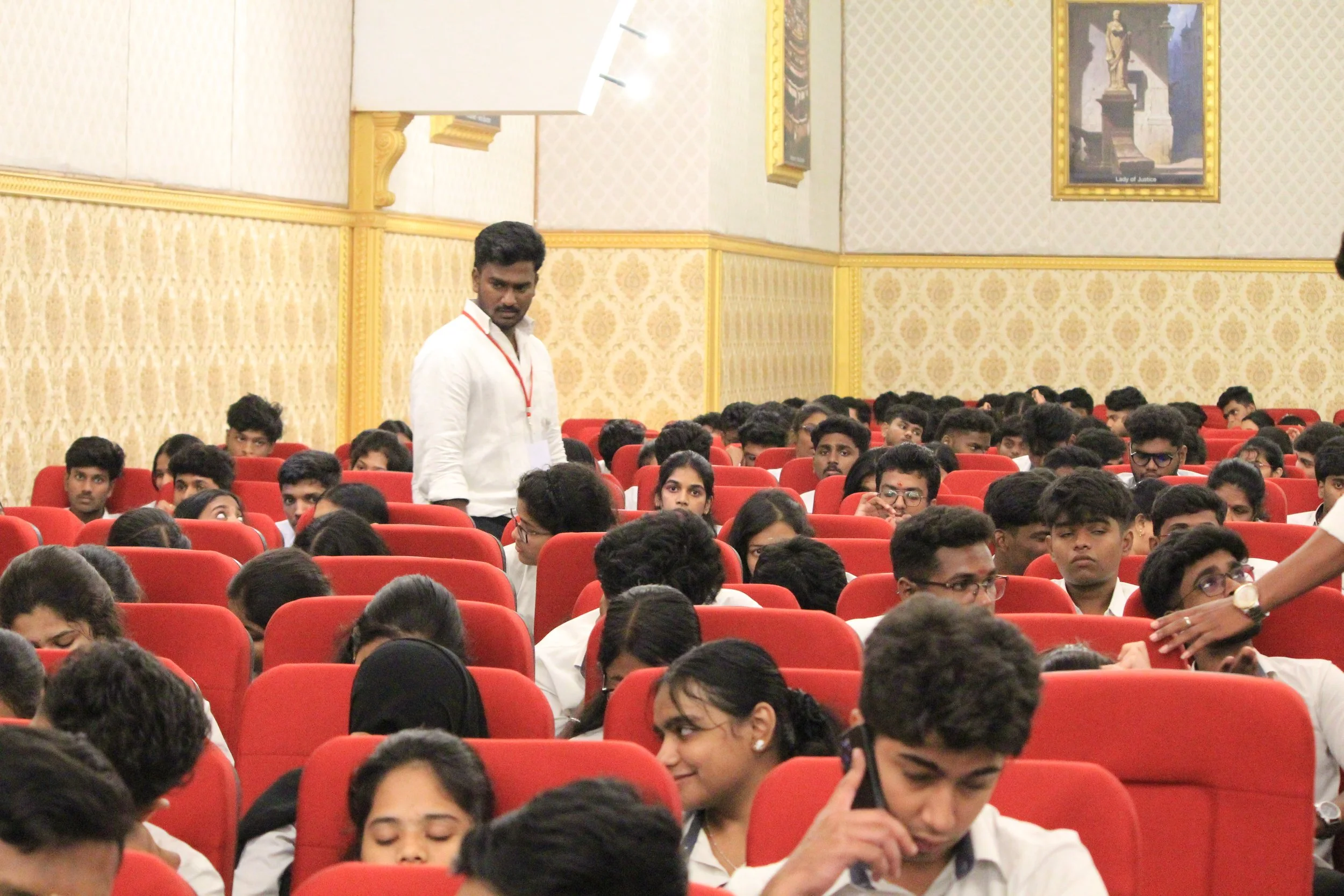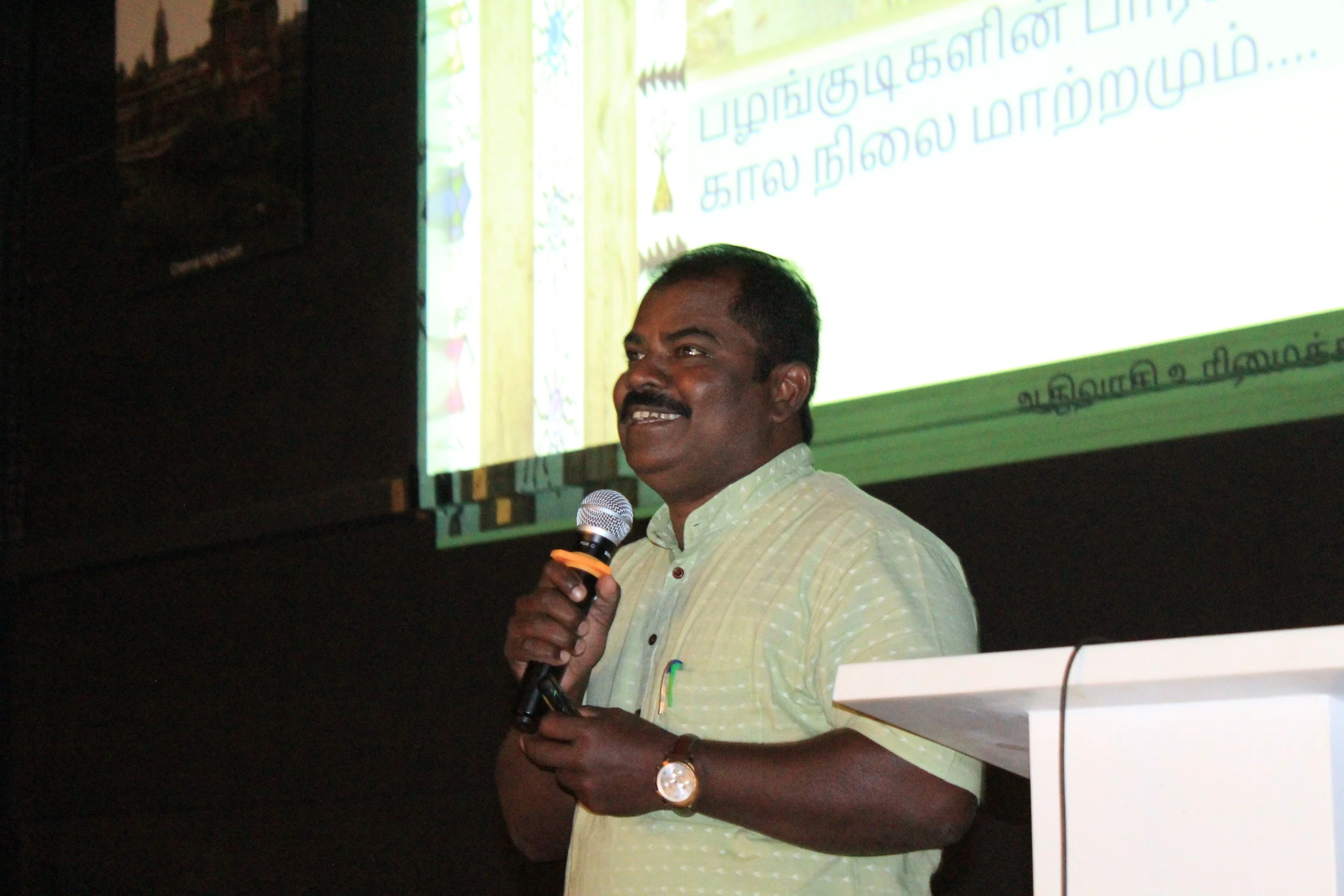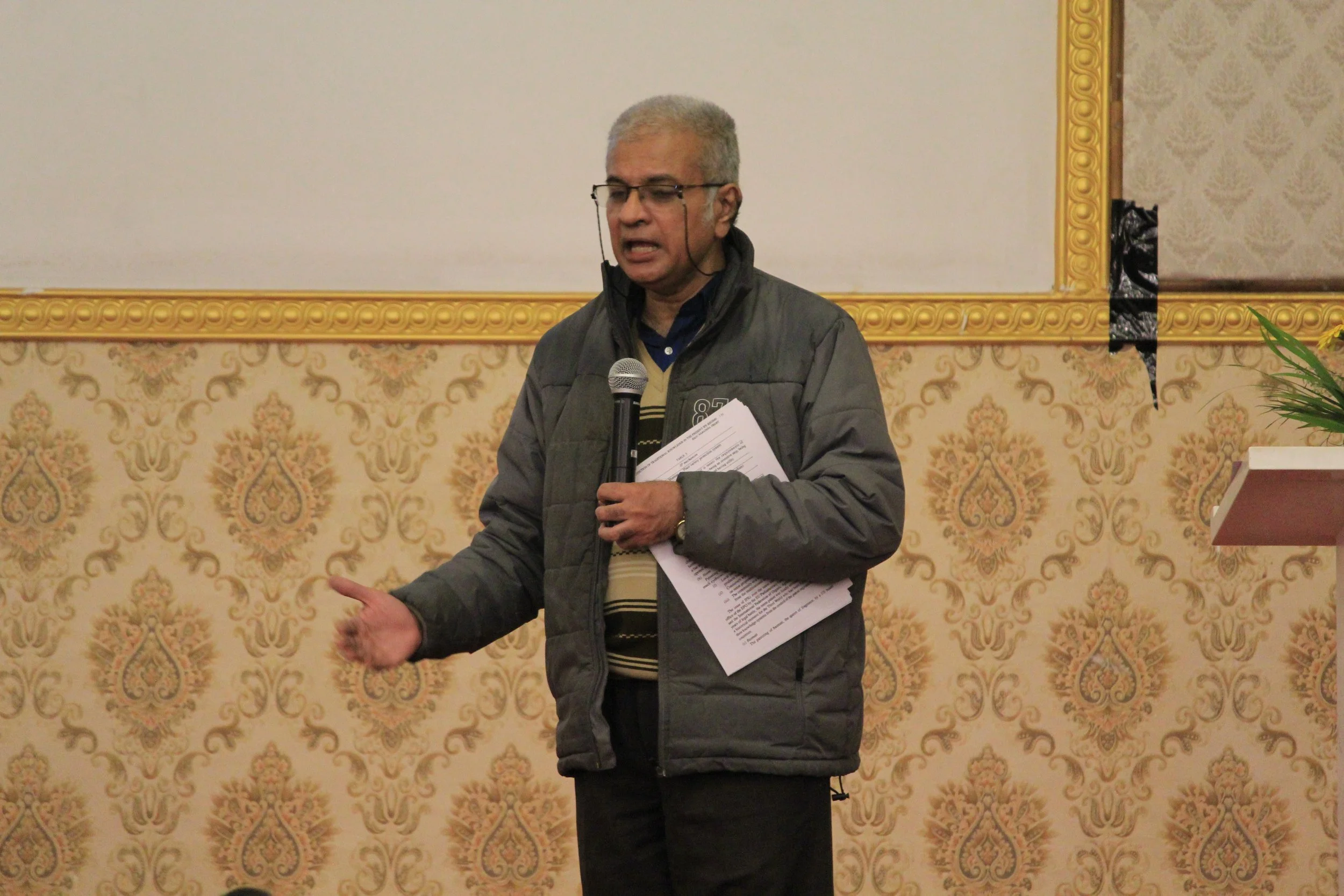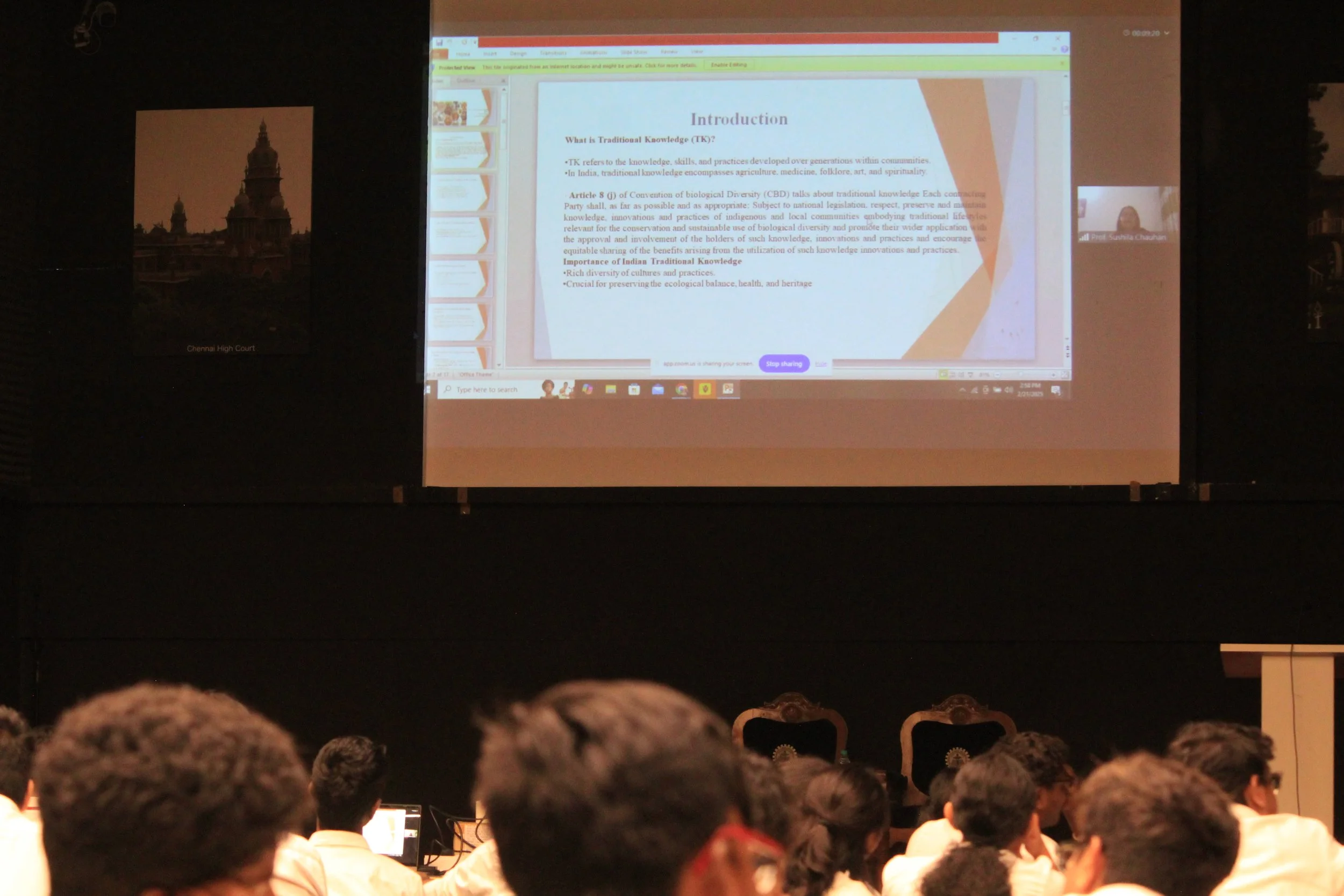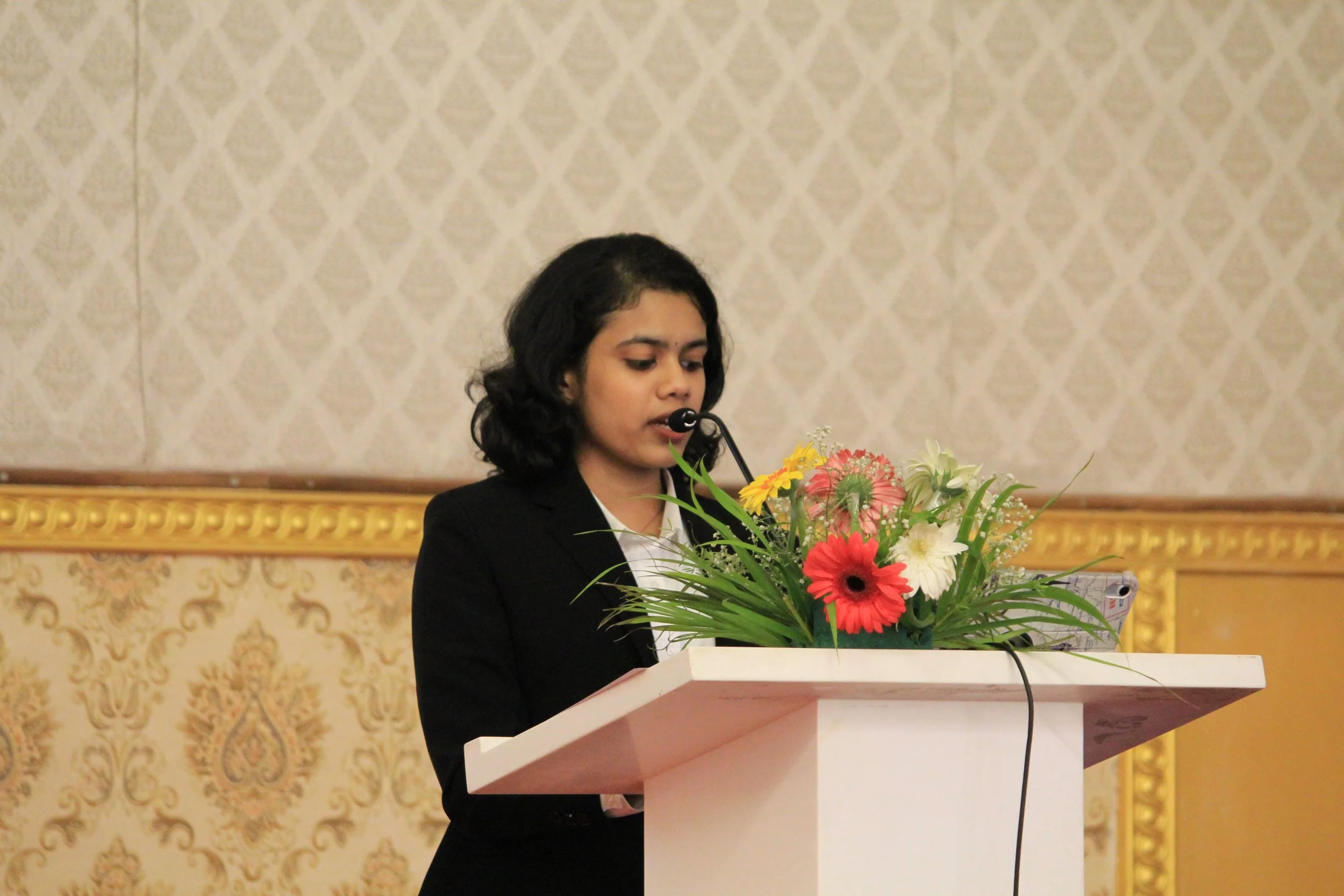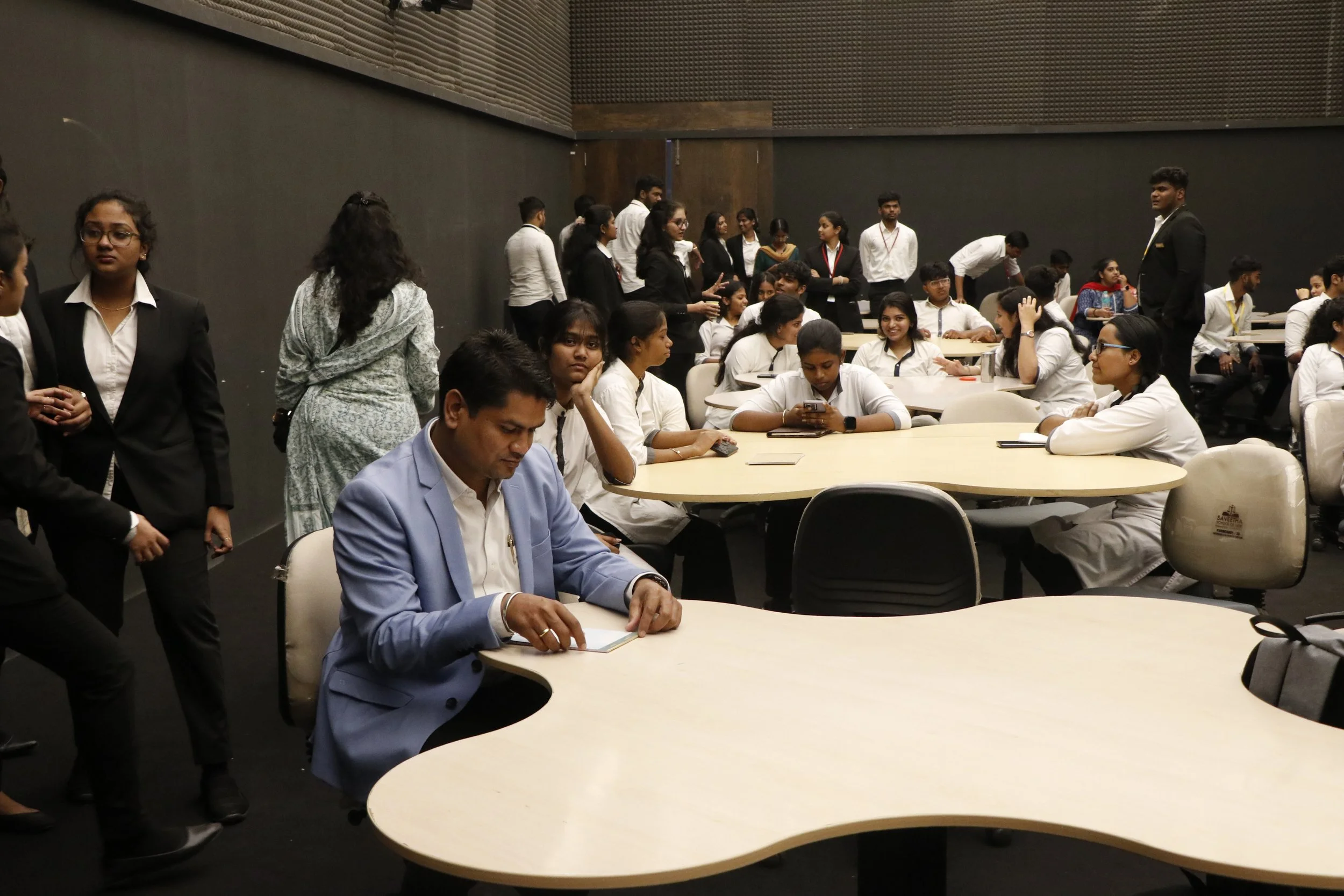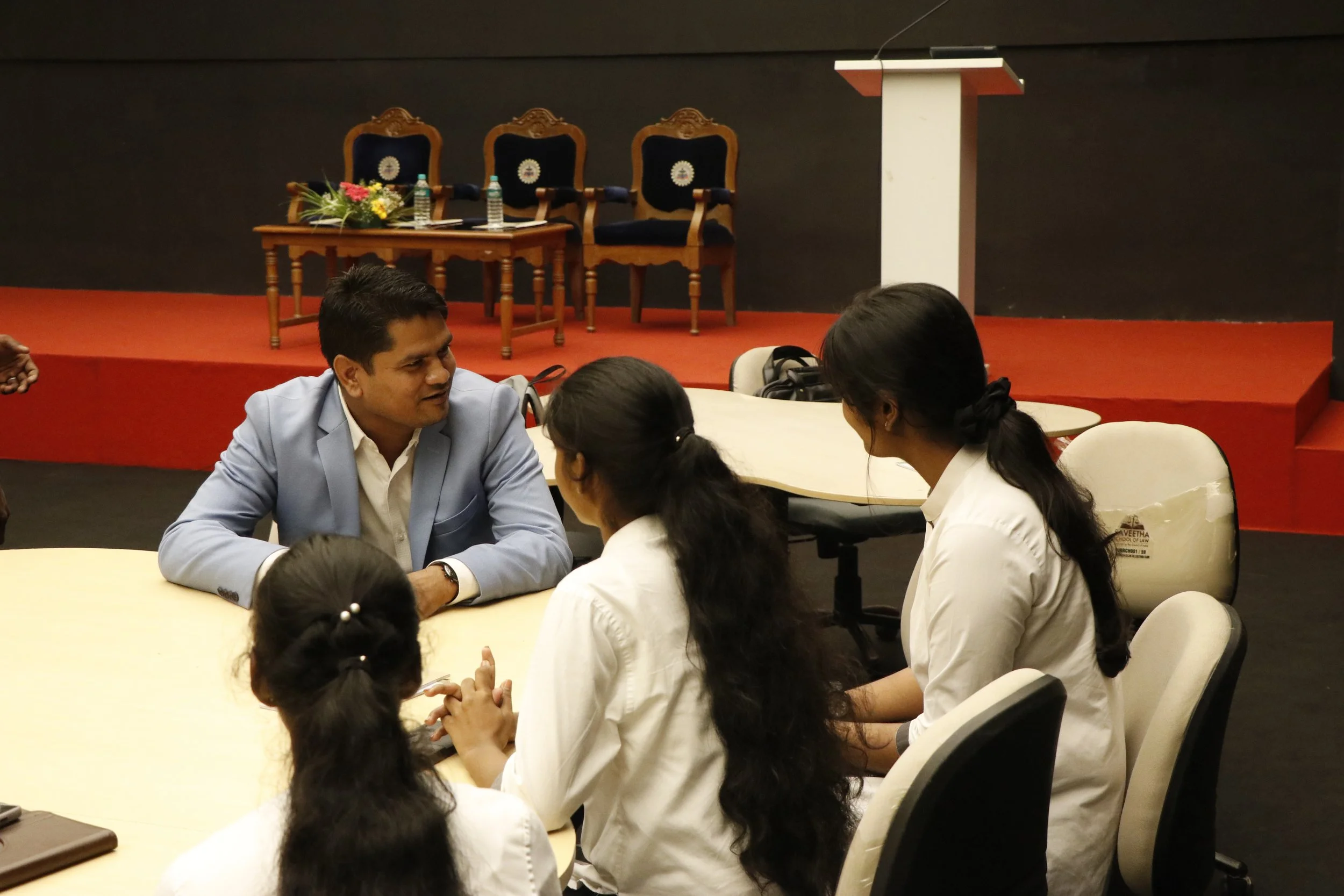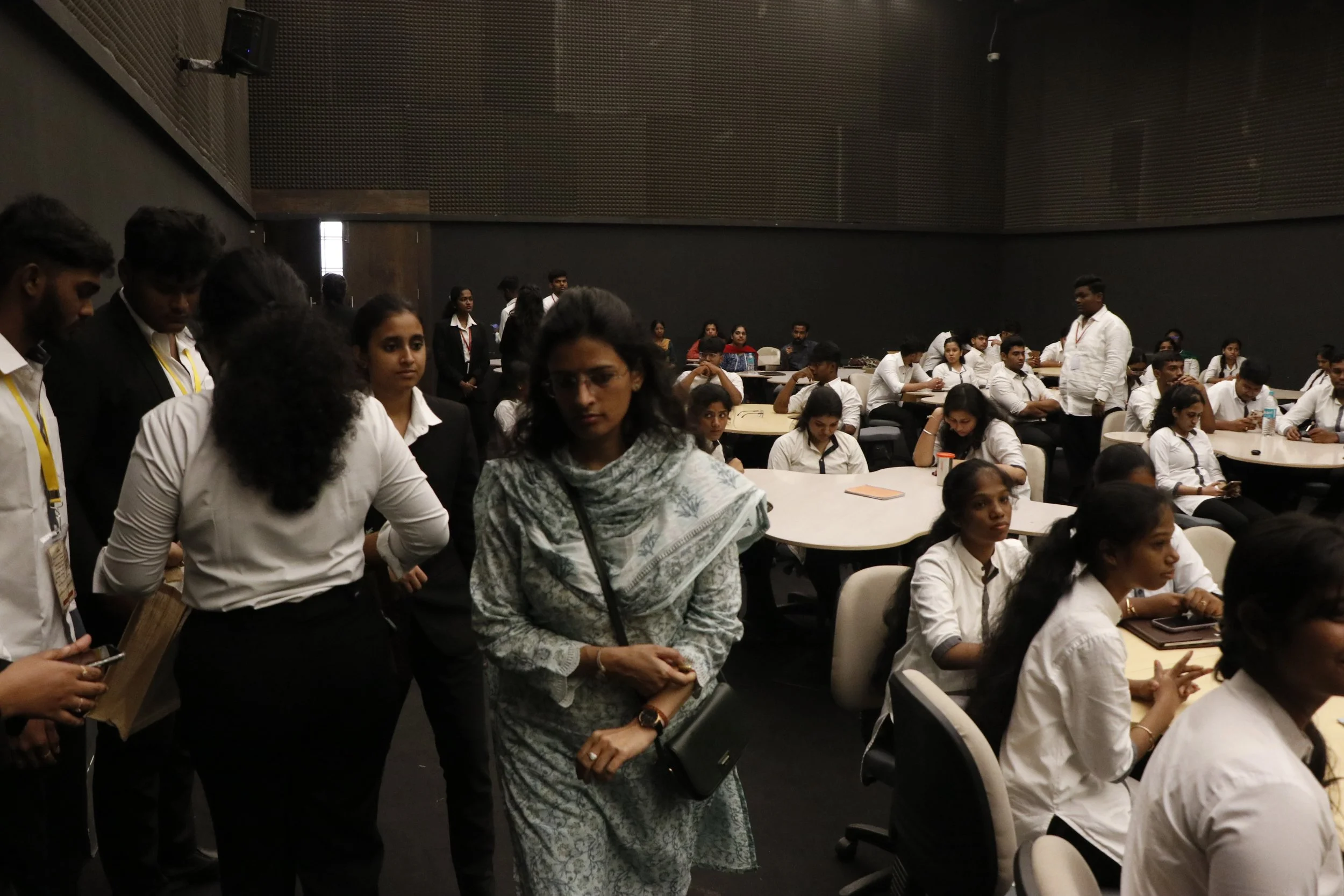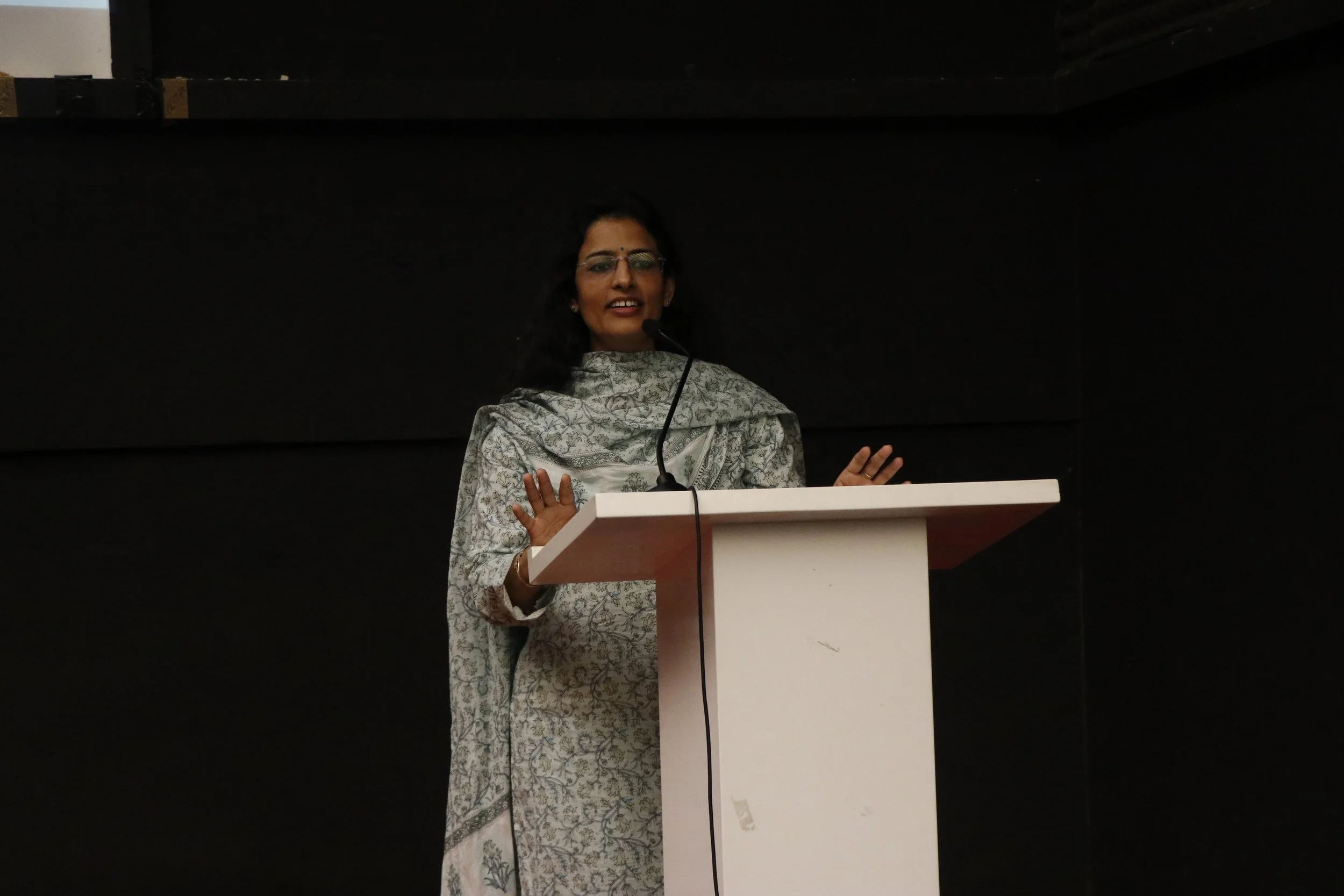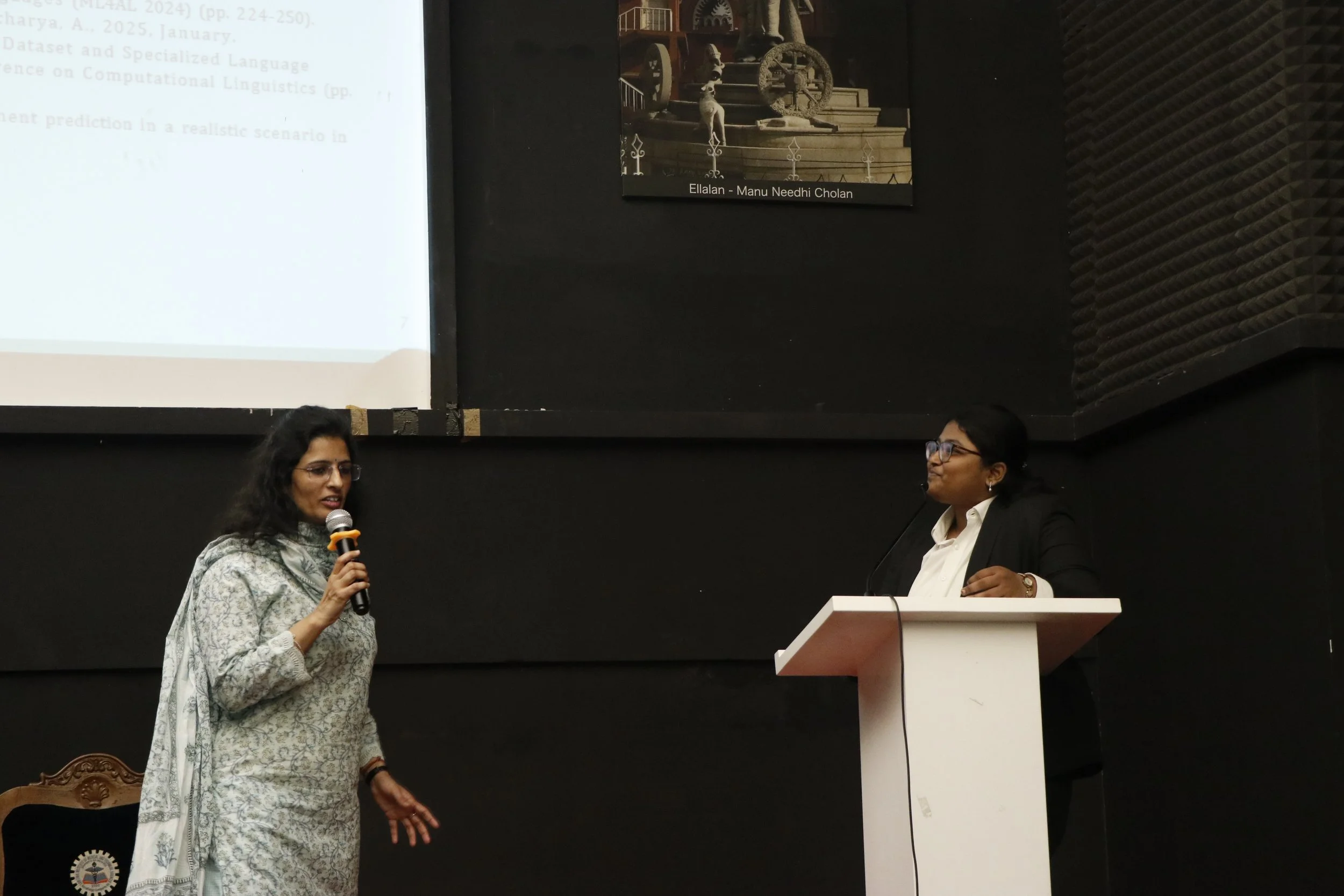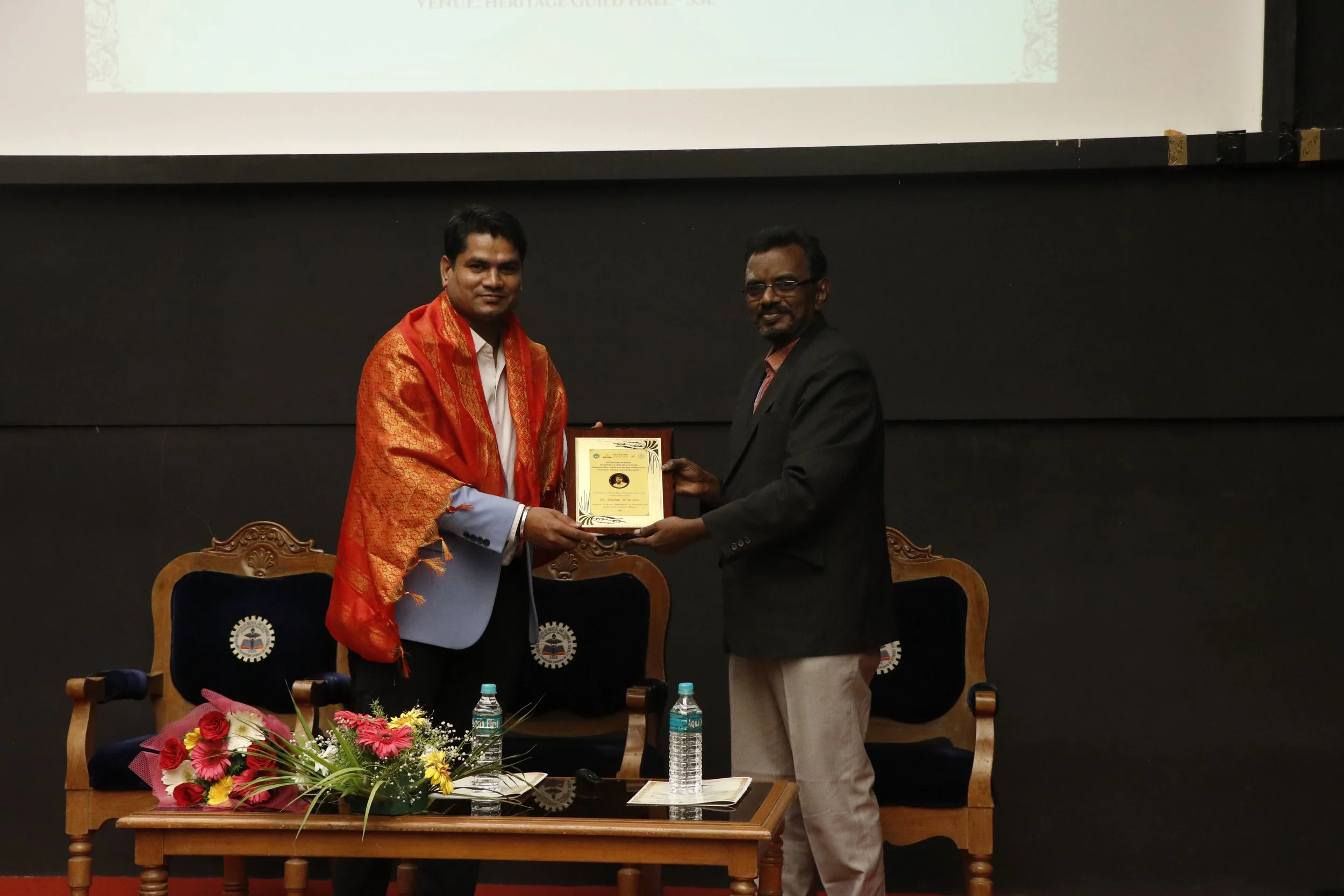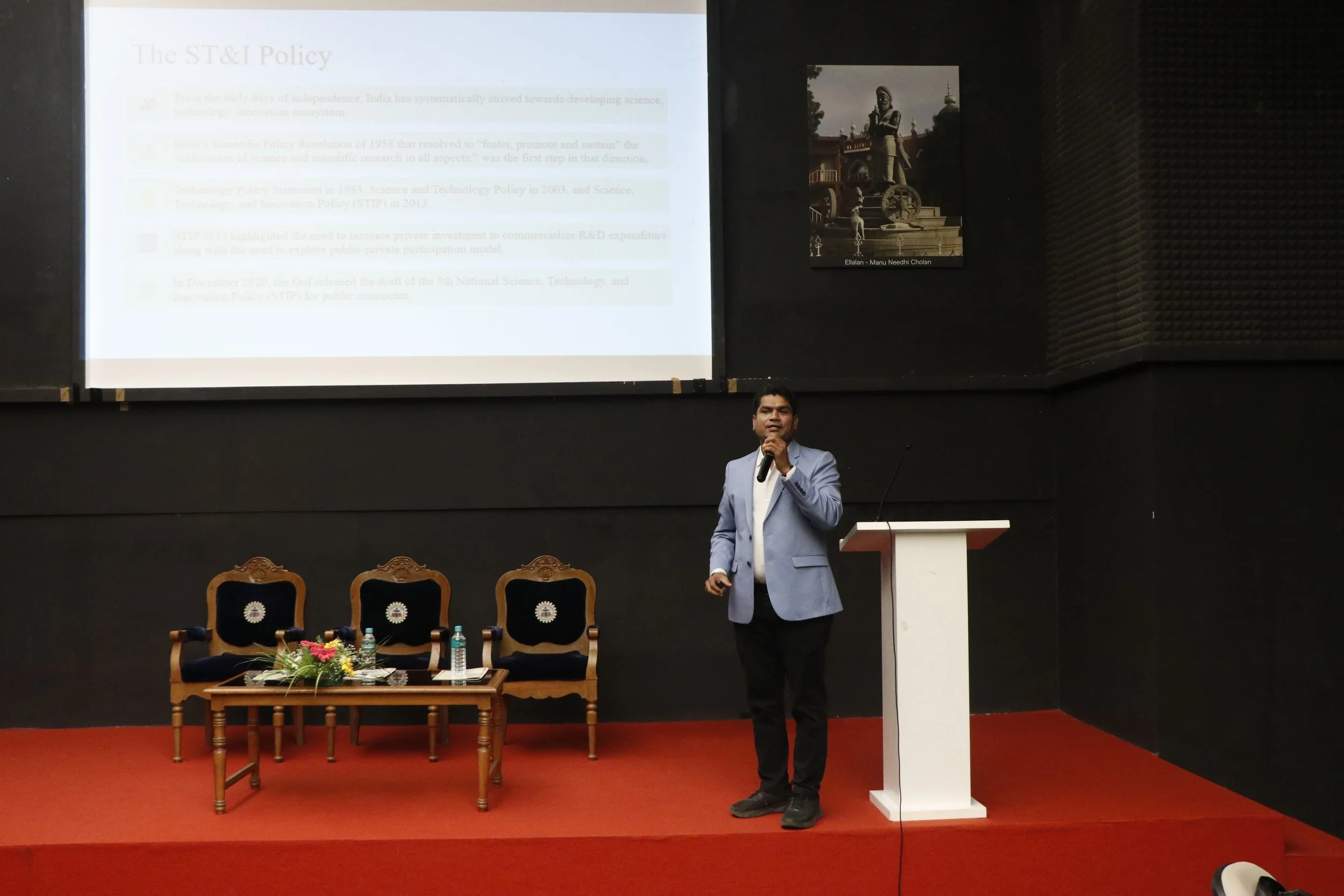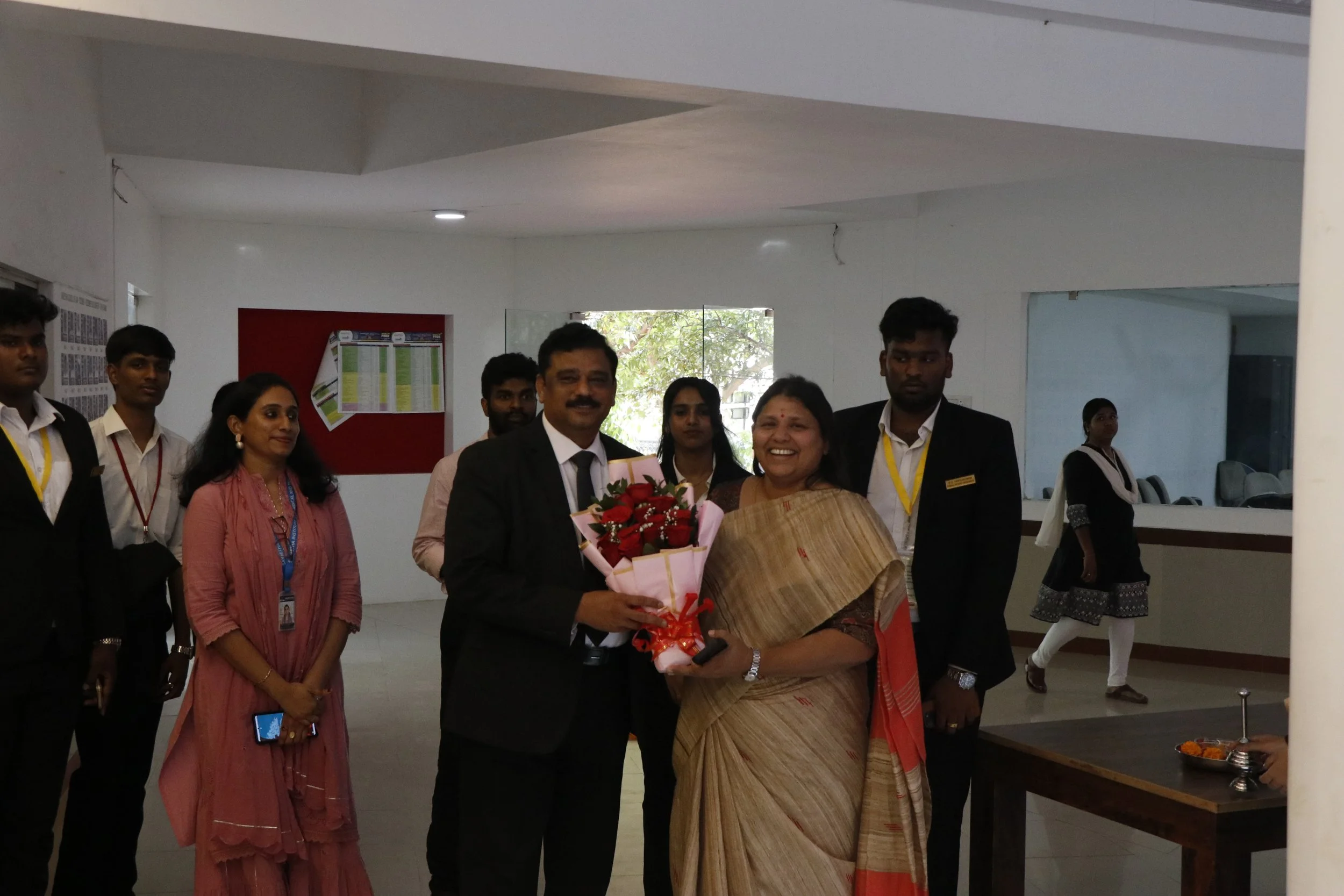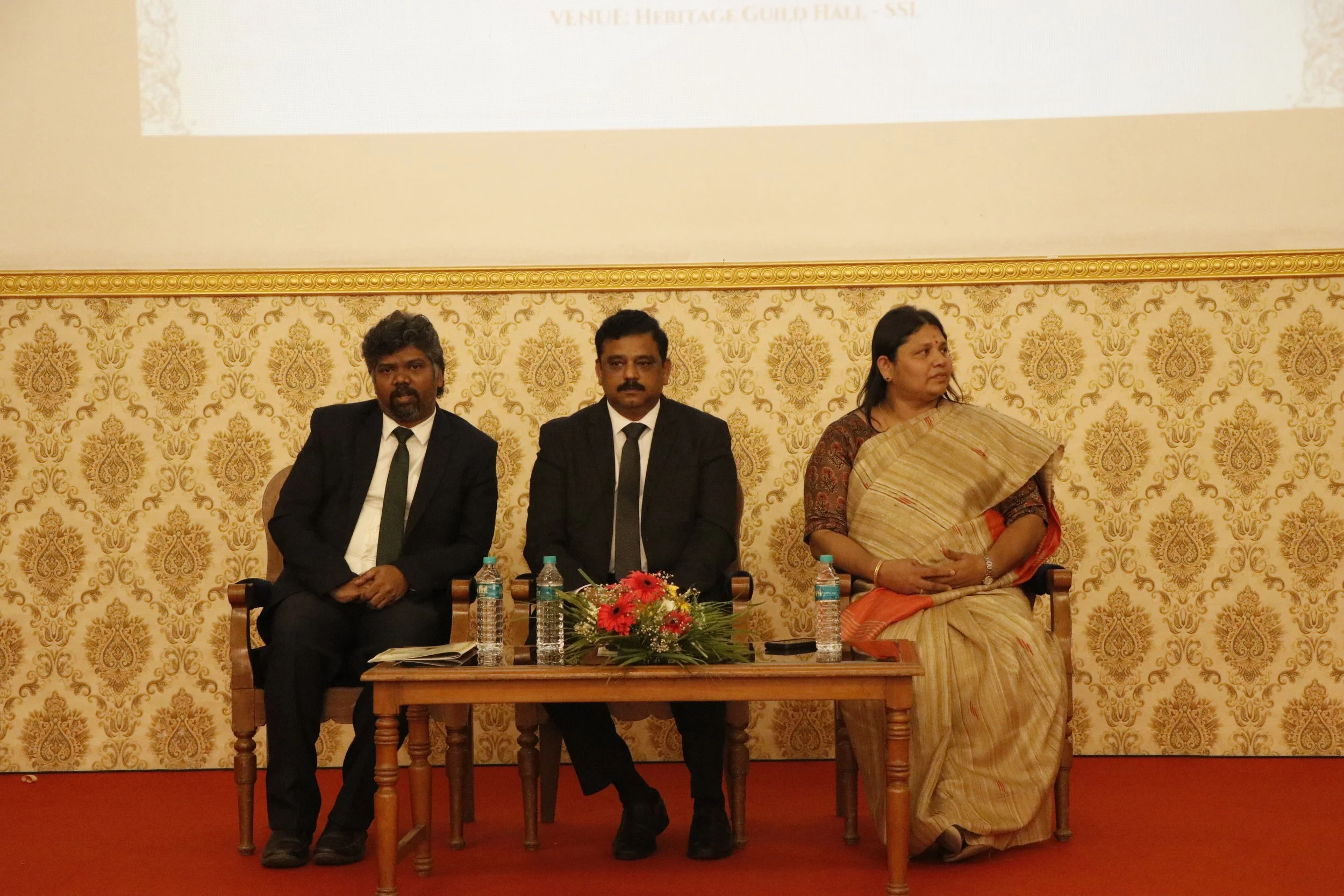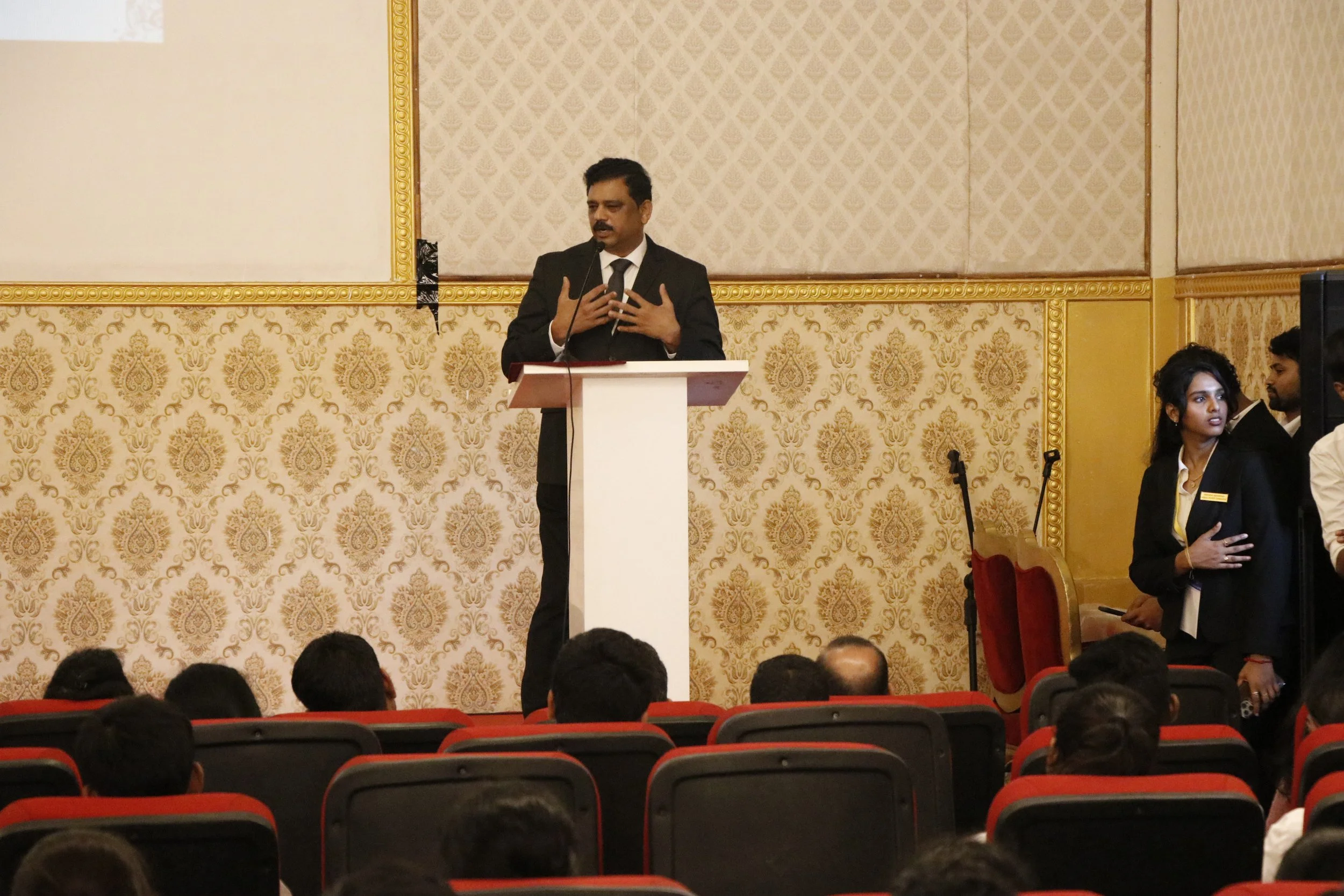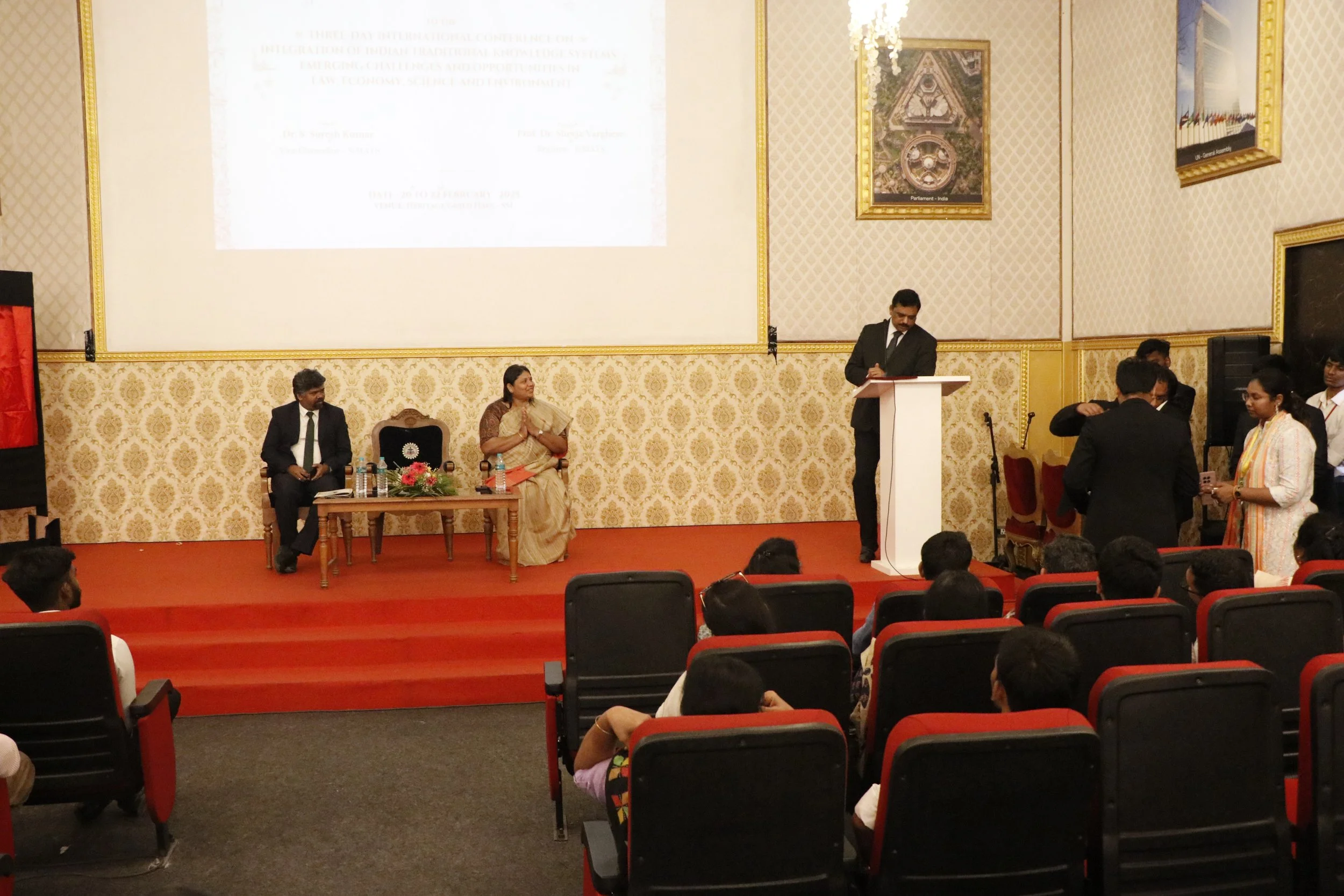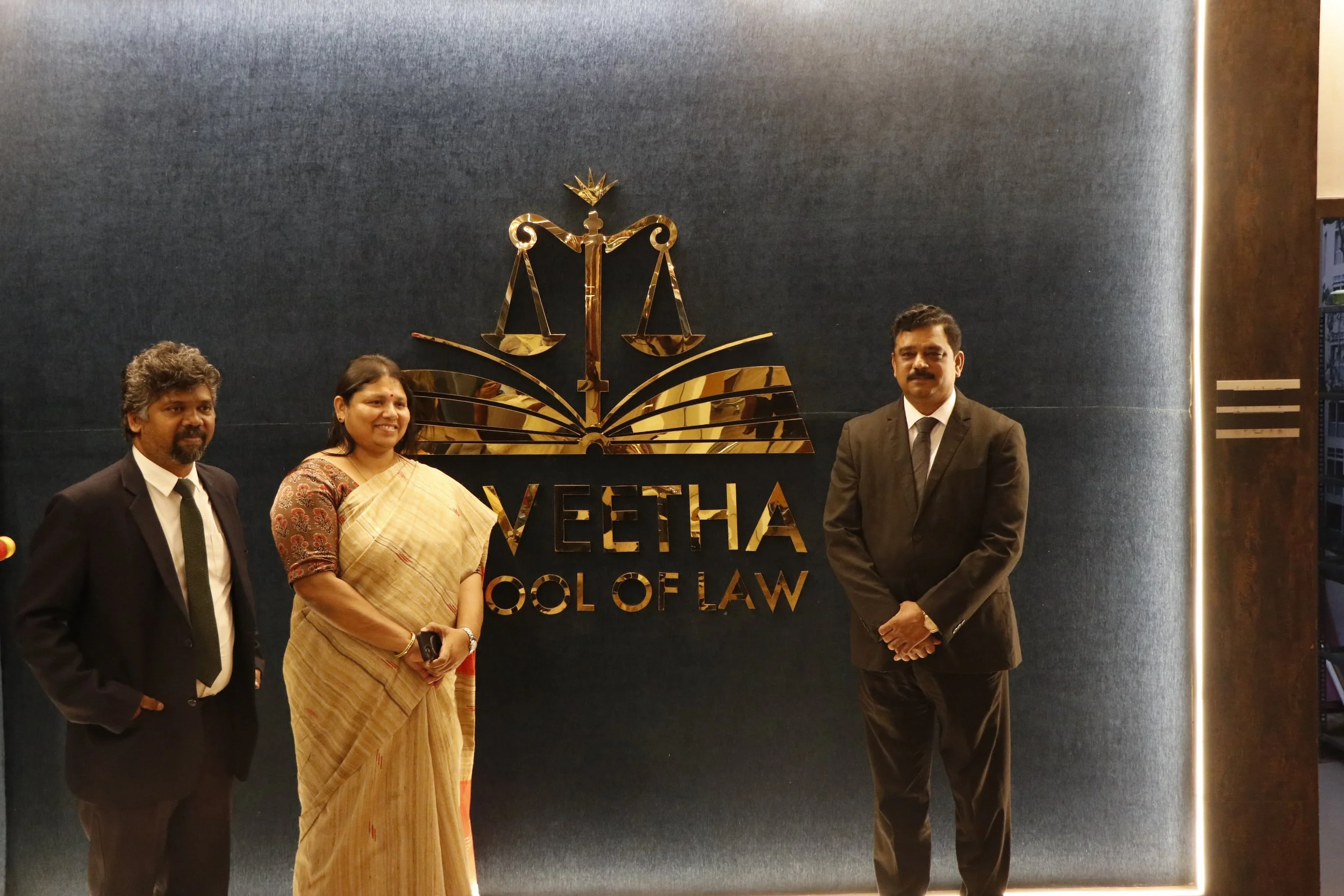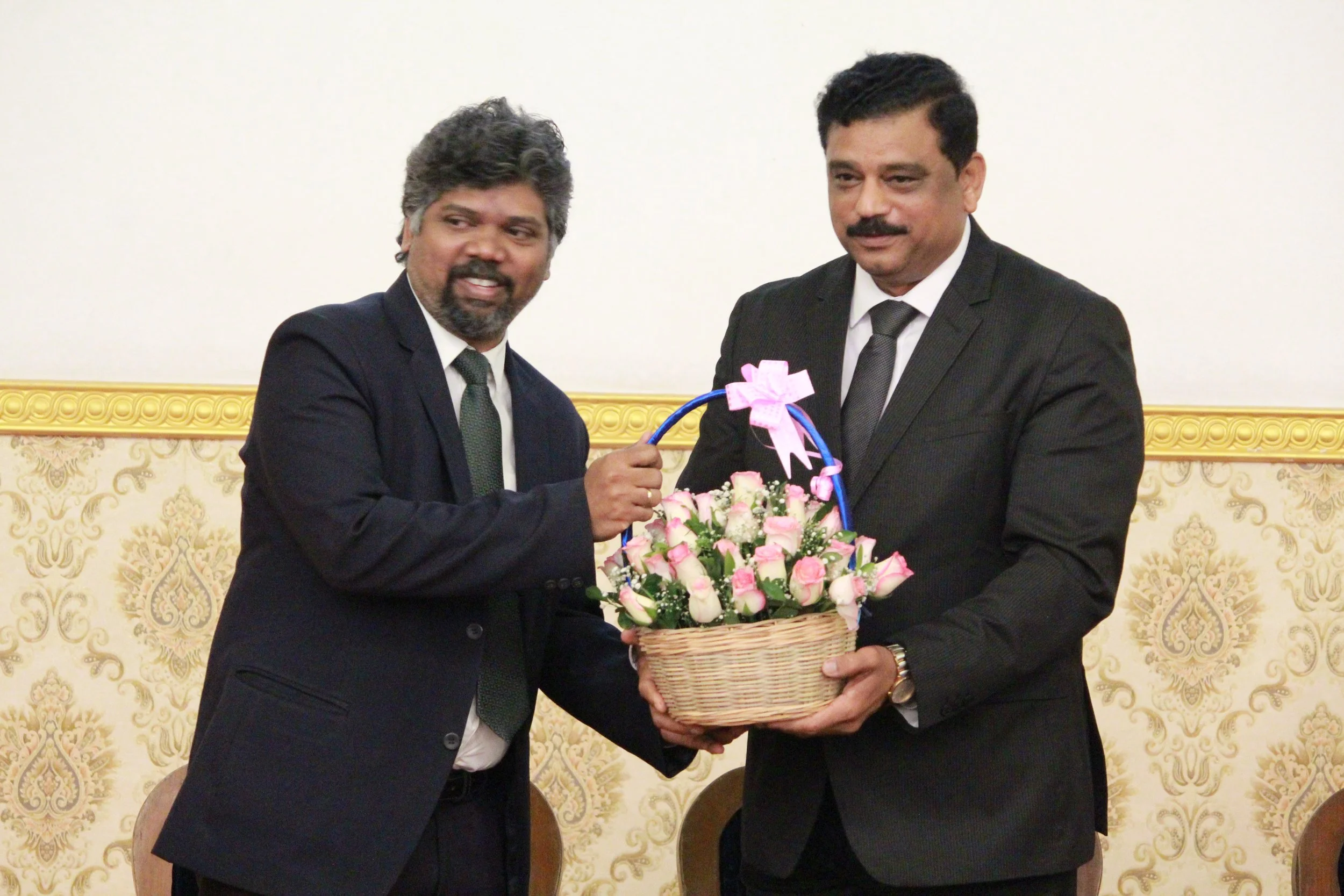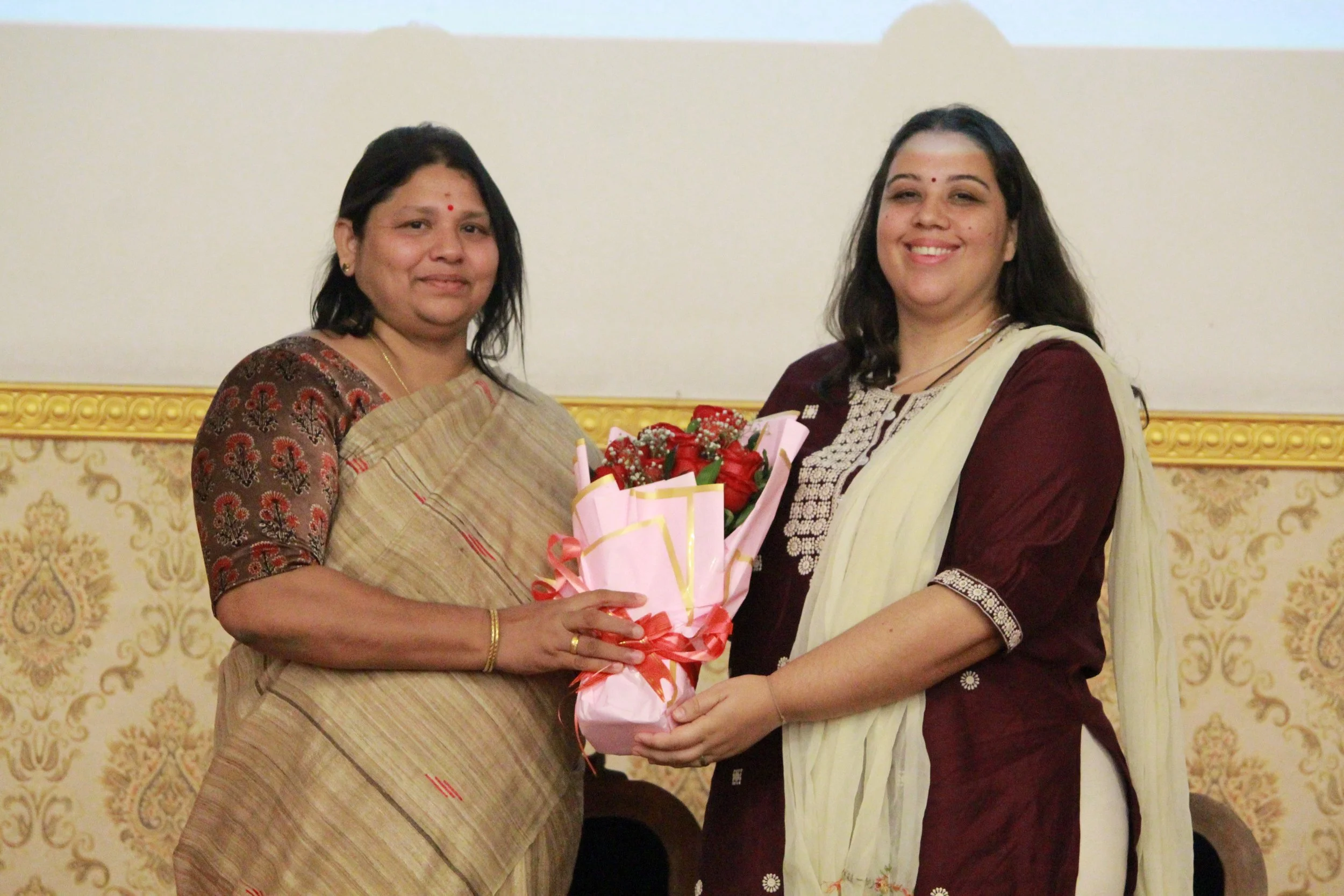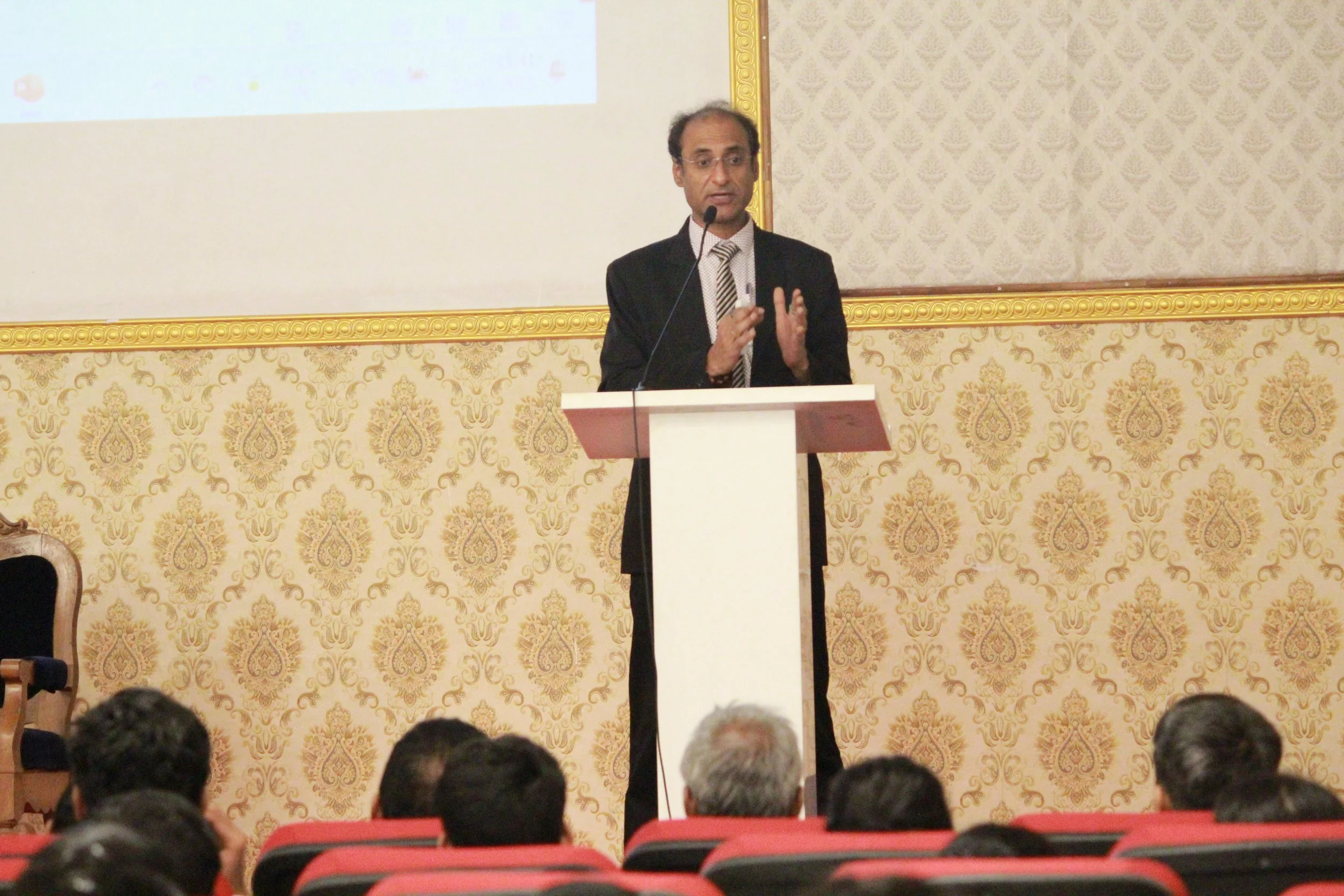THREE-DAY NATIONAL CONFERENCE ON INTEGRATION OF INDIAN TRADITIONAL KNOWLEDGE SYSTEMS: EMERGING CHALLENGES AND OPPORTUNITIES IN LAW, ECONOMY, SCIENCE, AND ENVIRONMENT
DAY 1 – 20th February 2025
The International Conference on “Integration of Indian Traditional Knowledge Systems: Emerging Challenges and Opportunities in Law, Economy, Science, and Environment” commenced with great fervor at the Heritage Guild Hall, Saveetha School of Law (SSL), Chennai. The venue witnessed an extraordinary confluence of scholars, researchers, and practitioners from across India and abroad, united by the common vision of exploring the relevance of Indian Knowledge Systems (IKS) in modern disciplines.
The inaugural session set an academic tone infused with cultural essence. Delegates were welcomed with traditional rituals and an inaugural address that acknowledged the rich legacy of Indian epistemology. The academic proceedings commenced with Dr. Anuradha Choudry, Coordinator of the IKS Division, Ministry of Education and faculty at IIT Kharagpur. Her session on “Why and What of IKS in NEP 2020” offered a policy-oriented overview of how IKS finds renewed validation under India’s New Education Policy, emphasizing its cross-sectoral importance.
Next, Prof. Kshitij Patukale (Bhishma School of Indian Knowledge System, Pune) delivered an evocative lecture on the role of women as carriers of traditional wisdom, drawing attention to their contribution across generations in preserving ethical, medicinal, and cultural knowledge.
Prof. Ram Nath Jha from JNU captured the audience with his talk on ancient Indian scientific advancements, linking them to modern developments in astronomy, metallurgy, and medical practices. This was followed by Dr. Vishakha Kutumbale (DAVV, Indore), who explored the integration of traditional knowledge into legal and ecological systems, stressing how traditional customs offer sustainable solutions.
Midday sessions featured Dr. Priti Jagwani (Aryabhatta College, DU), who discussed the challenges of mainstreaming IKS in modern education, and Dr. Preety Choudhari (BBAU, Lucknow), who spoke on inclusive human-environment connections in Indian traditions. Dr. Dipesh Vinod Katira added linguistic depth with his lecture on Sanskrit and modern Indian language evolution, while Mr. Maniprasad Nirola, from Bhutan, brought an international perspective by presenting Bhutan’s approach to biodiversity conservation through traditional knowledge.
Day 1 concluded with spirited discussions among attendees, paving the way for more profound interdisciplinary dialogues. The diversity of speakers and their unique intersections with law, science, ecology, and governance marked an impactful beginning to this prestigious international gathering.
DAY 2 – 21st February 2025
The second day of the International Conference continued with vibrant engagement as scholars explored deeper intersections of IKS with intellectual property, linguistics, biodiversity, and governance systems. The diverse disciplines represented were unified under the core theme of re-centering Indian traditional knowledge in contemporary academic and policy frameworks.
The morning session began with Dr. V. Ramanathan (IIT-BHU) who took the audience through scientific milestones of ancient and medieval India, challenging colonial dismissals of India’s intellectual past. His compelling references to Ayurveda, Rasashastra, and astronomical models reinvigorated pride in indigenous science.
Prof. C.D. Sebastian (IIT Bombay) presented a philosophical discourse on scientific epistemologies and indigenous wisdom, encouraging an open-minded reappraisal of how knowledge is created and validated. His talk sparked engaging debates on the compatibility of traditional methods with modern scientific standards.
Next, Prof. Nalin Bharti (IIT Patna) explored Intellectual Property Rights and Traditional Knowledge, particularly India’s struggle for protection at global forums like WIPO. He stressed the urgency of legislative reforms and regional documentation for safeguarding indigenous assets.
From an ecological lens, Dr. T.V. Sajeev (Kerala Forest Research Institute) and S. Thanaraj, tribal rights activist, together offered real-world insights into how tribal knowledge has preserved biodiversity in climate-sensitive regions. They emphasized a bottom-up approach to environmental legislation rooted in community traditions.
Language and pedagogy were taken up by Prof. Rajesh Kumar (IIT Madras), who explained language as the foundation of knowledge systems, linking it to cognitive justice and linguistic plurality in India.
Prof. Ruchi Sharma (IIT Indore) transitioned into the economic terrain by discussing the economics of innovation in IKS, while Prof. (Dr.) Sushila Chouhan (Kurukshetra University) articulated the legal dimension of IKS, particularly how Indian jurisprudence can better embrace indigenous dispute resolution and ethical reasoning.
Day 2 was a fertile ground for collaborative thought, pushing participants to bridge the gap between ancient frameworks and modern legal-scientific imperatives.
DAY 3 – 22nd February 2025
The final day of the International Conference was marked by rich academic exchanges, global perspectives, and a ceremonious conclusion with the much-awaited inauguration of the Centre for Indian Knowledge System (CIKS).
Morning sessions began with Prof. Suresh Bhalla (IIT Delhi), who delved into Eco-theology and Science, bridging metaphysical inquiry with sustainability models in Indian philosophy. Prof. Kshama Puntambekar (SPA Bhopal) presented on IKS in town planning, drawing fascinating insights from Vastu Shastra and its applications in contemporary architectural frameworks.
Prof. Ajay Kumar Verma (JNU) addressed post-TRIPS behavior of the pharmaceutical industry, critiquing how global IP regimes often undermine traditional medicinal practices. Dr. Narendran Thiruthy (IIT Kharagpur) further explored India’s role in WIPO’s GRTK Treaty, suggesting strategies for international protection of traditional knowledge.
Global expertise was brought in by Dr. Wanilza Fortuna from Brazil, who shared comparative insights into Latin American indigenous frameworks in governance and sustainability. Prof. Krishna Mohan Pandey (JNU) and Prof. Raksha Sharma (IIT Roorkee) presented on Sanskrit semantics and AI applications for mythological knowledge extraction, representing an extraordinary intersection of tradition and technology.
The session on economic philosophies in Vedic texts by Dr. Madan Dhanora (MANIT Bhopal) added a unique socio-economic angle, showcasing ancient ideas of wealth, sustainability, and trade ethics.
Finally, the inauguration of the Centre for Indian Knowledge System (CIKS) was held as the concluding event of the conference. Prof. (Dr.) S. Shanthakumar, Director of Gujarat National Law University, presided over the ceremony as Guest of Honour. His speech emphasized the Centre’s role in reviving ancient legal and ethical systems, and bridging the past with future legislative discourse.
CIKS will function as a research and policy hub, engaging with classical texts like Dharmashastra, Manusmriti, and Arthashastra, and fostering academic initiatives on indigenous dispute resolution, environmental ethics, and cultural jurisprudence. Its launch, accompanied by the introduction of an elective course on Ancient Indian Legal Thought, marks a significant leap for SSL in shaping holistic legal education.
With the successful closing of this international event, Saveetha School of Law reaffirmed its position as a pioneering institution committed to preserving, interpreting, and applying India’s vast intellectual heritage.

